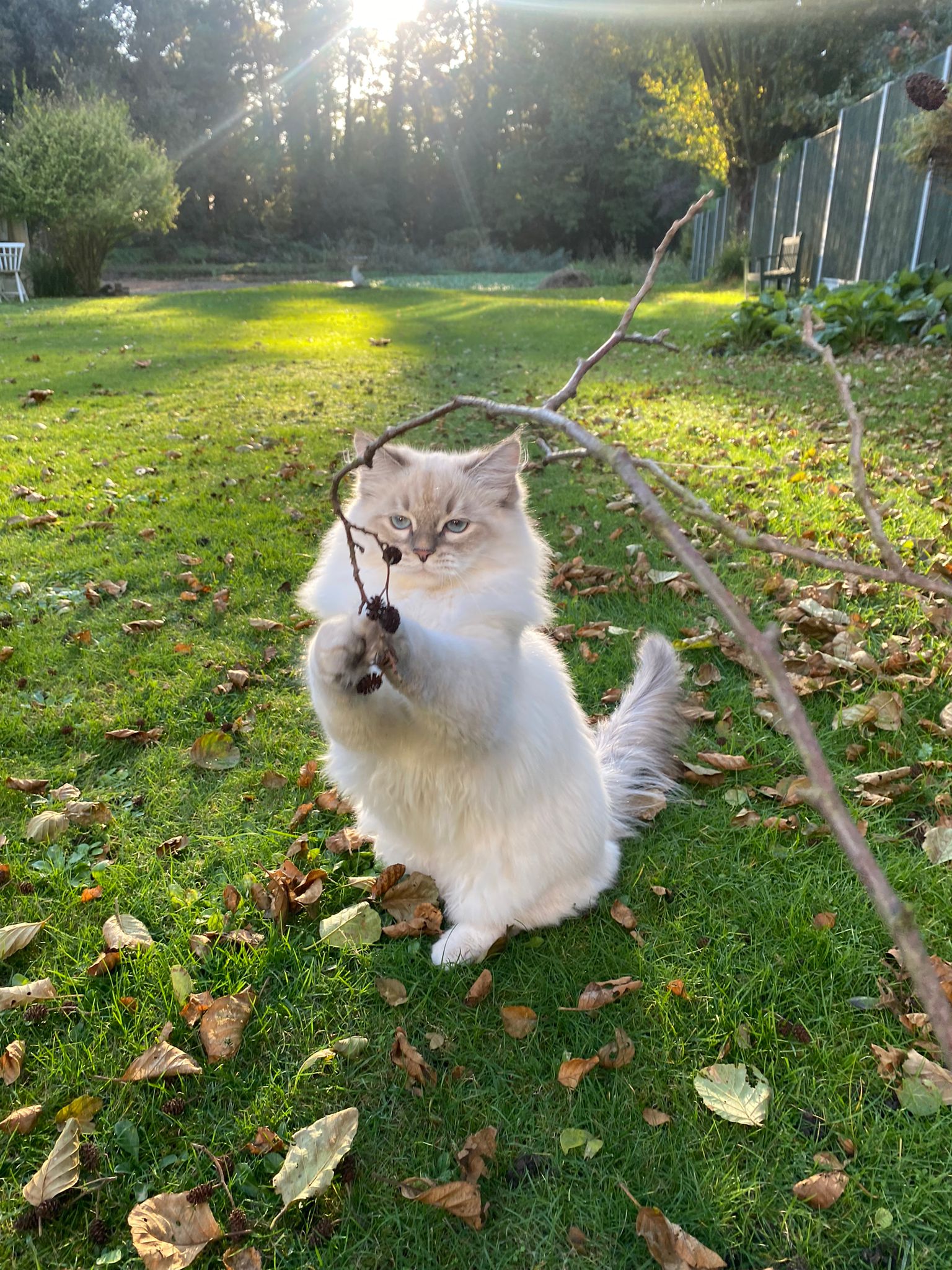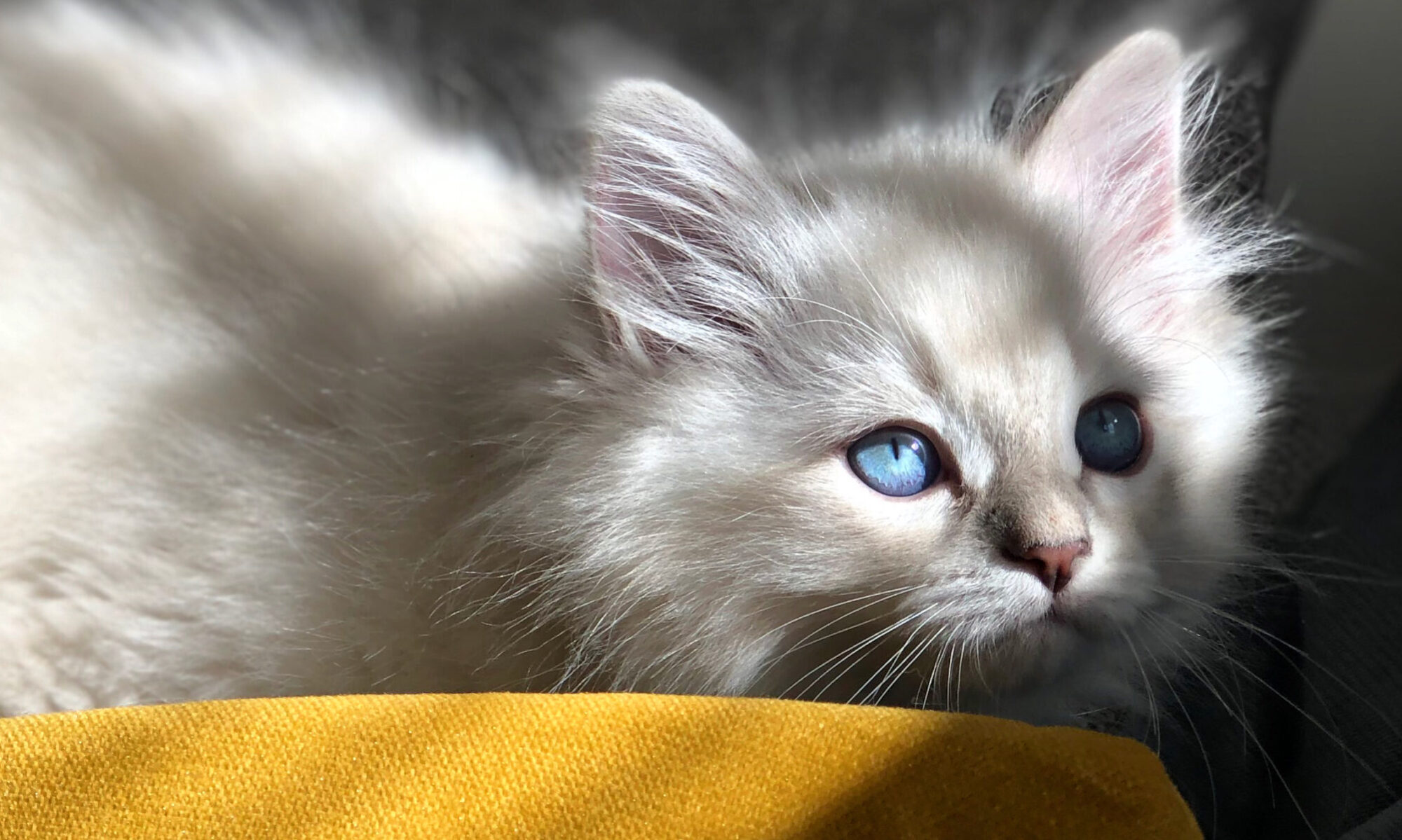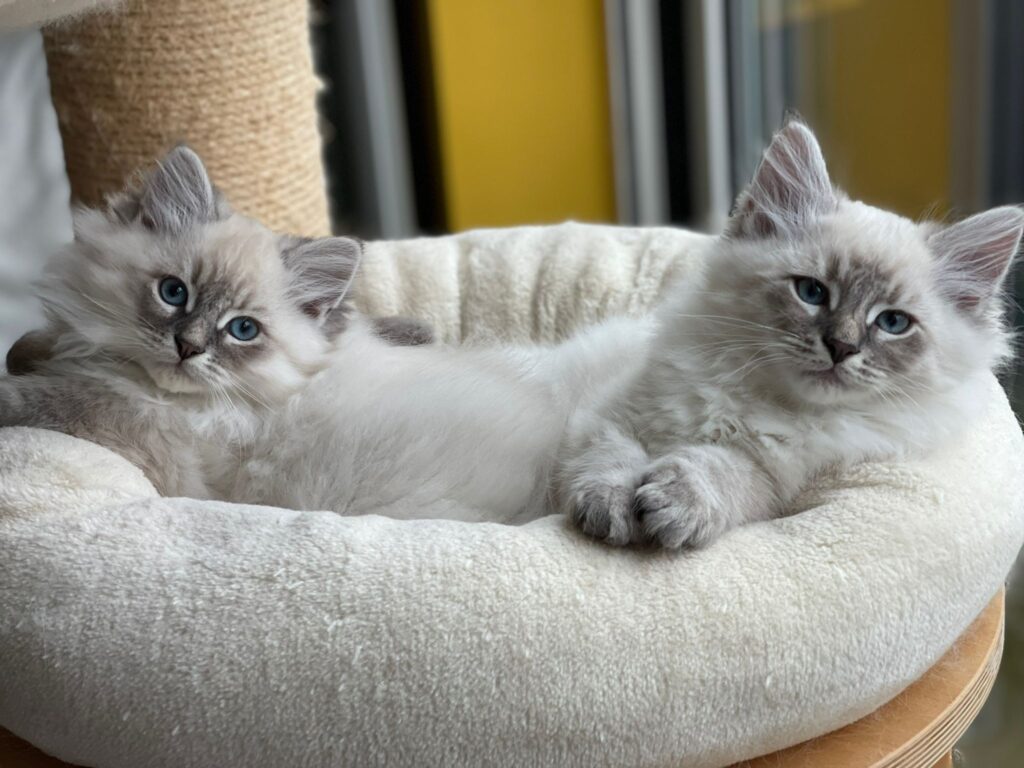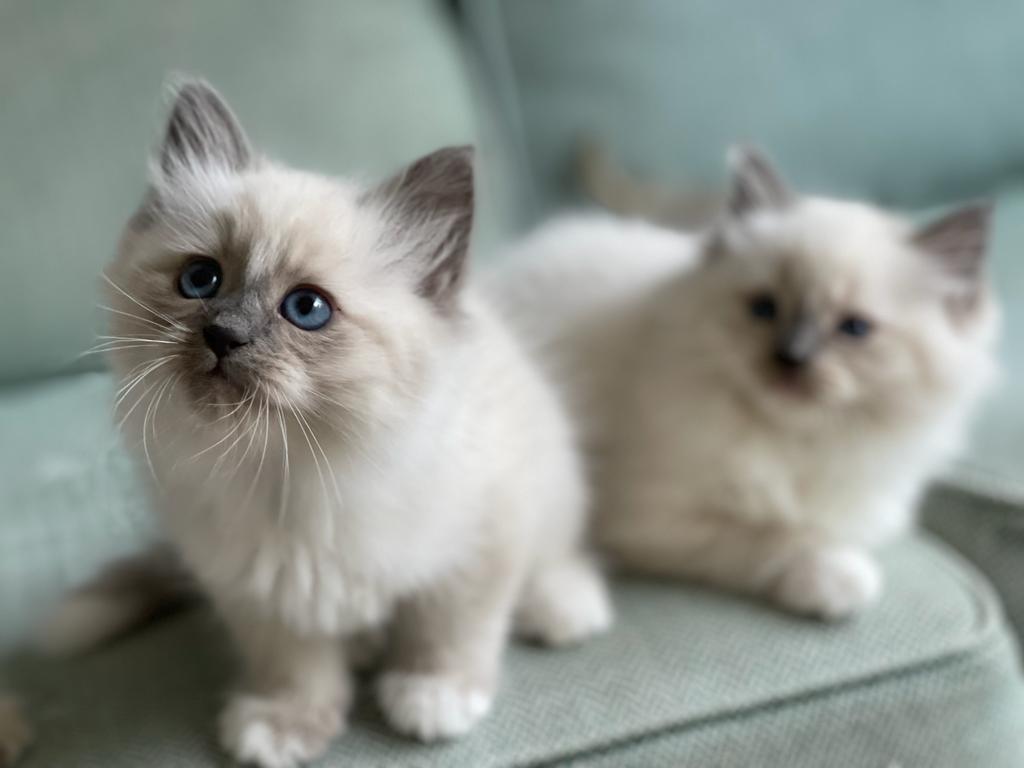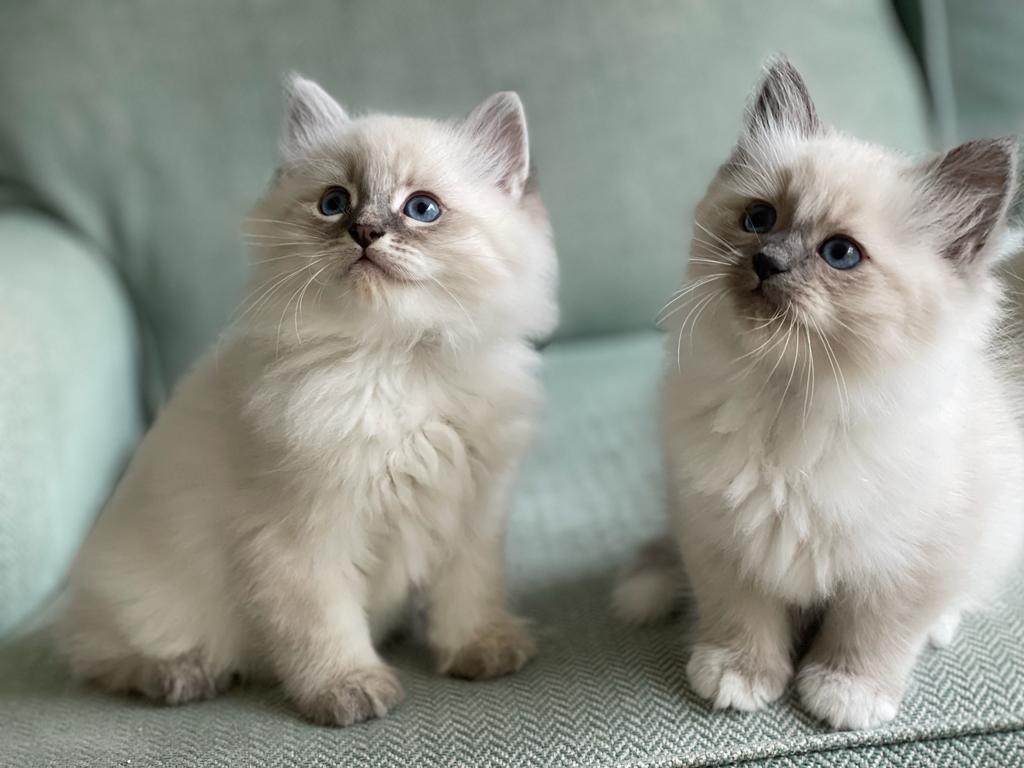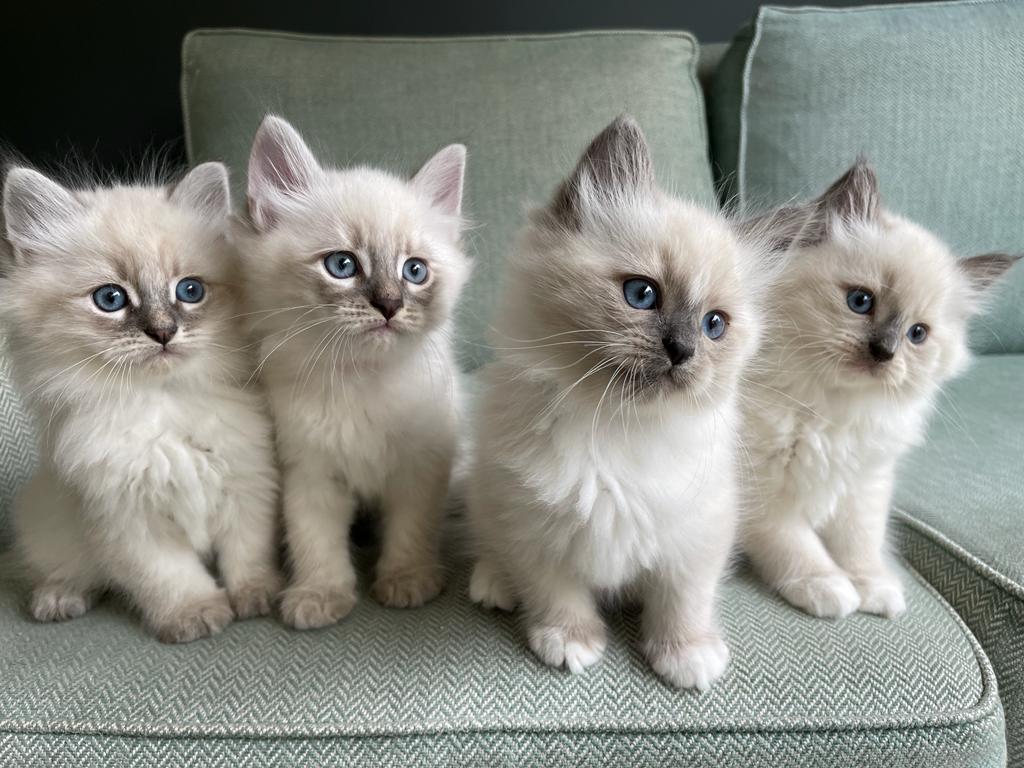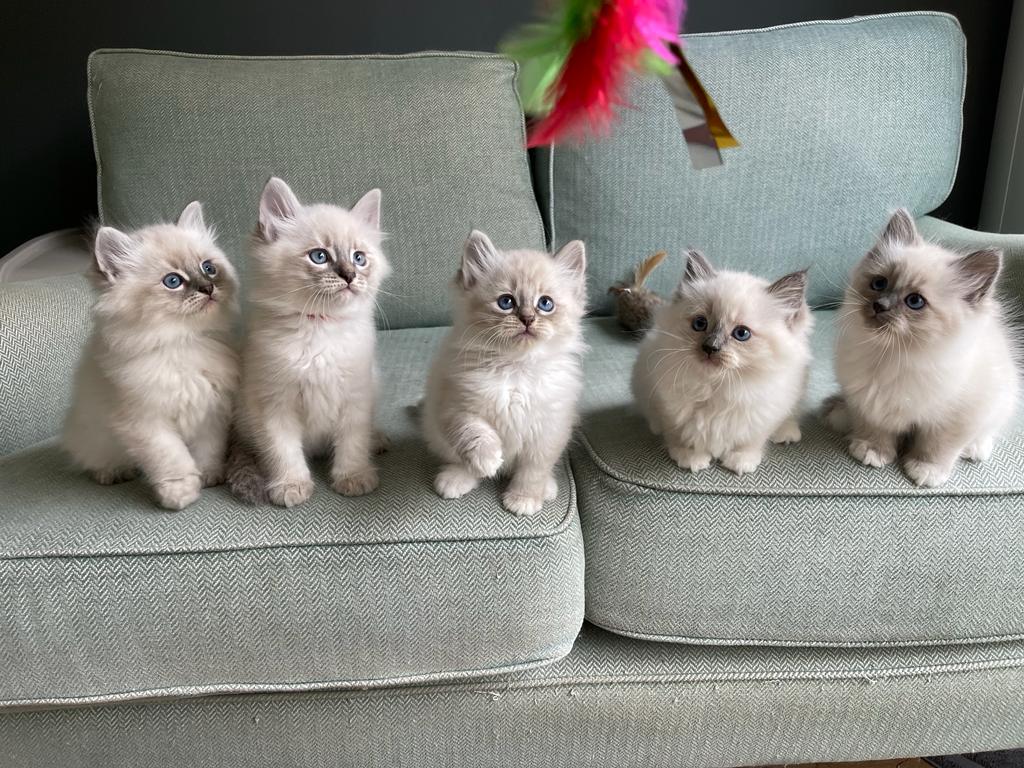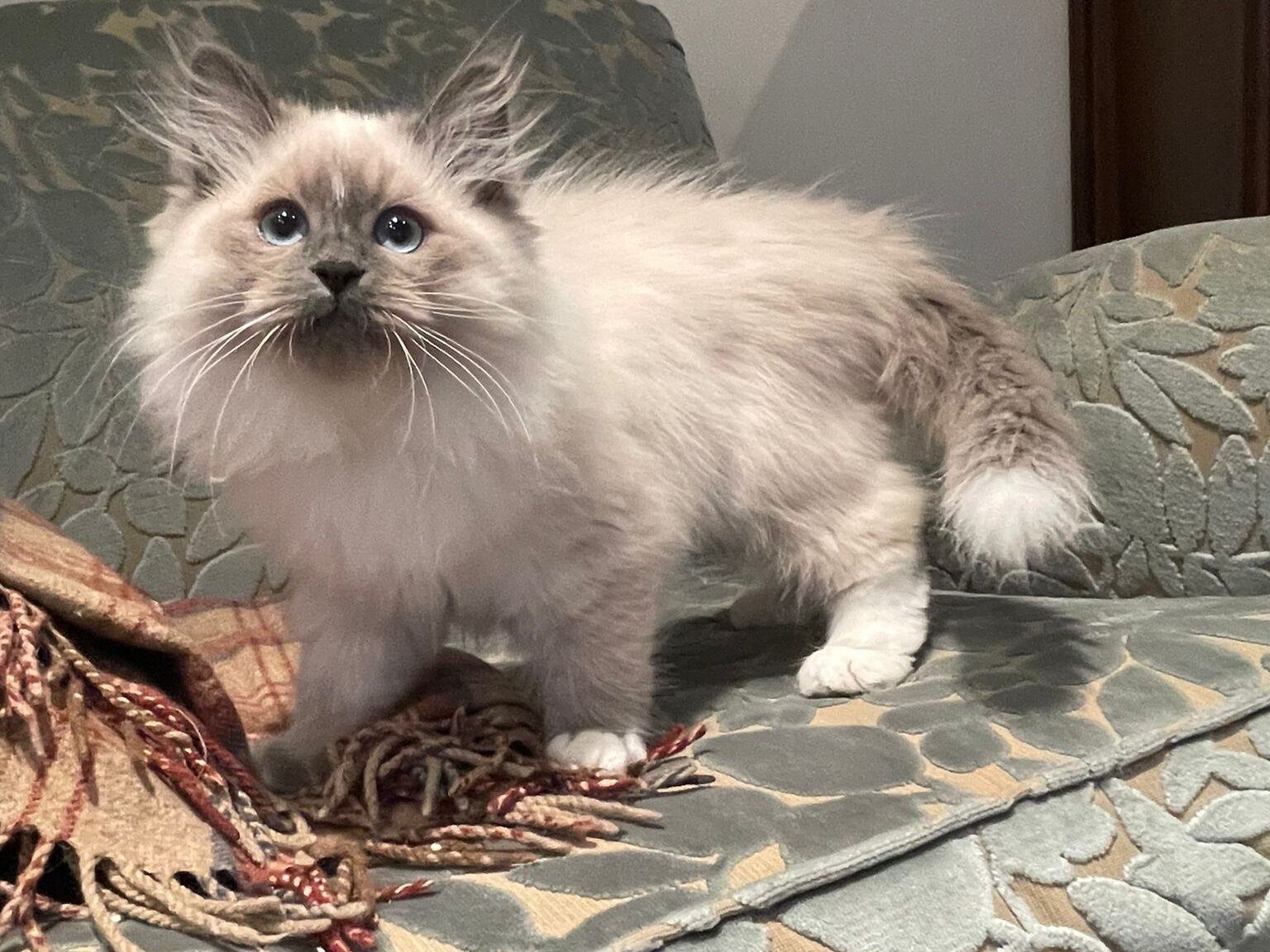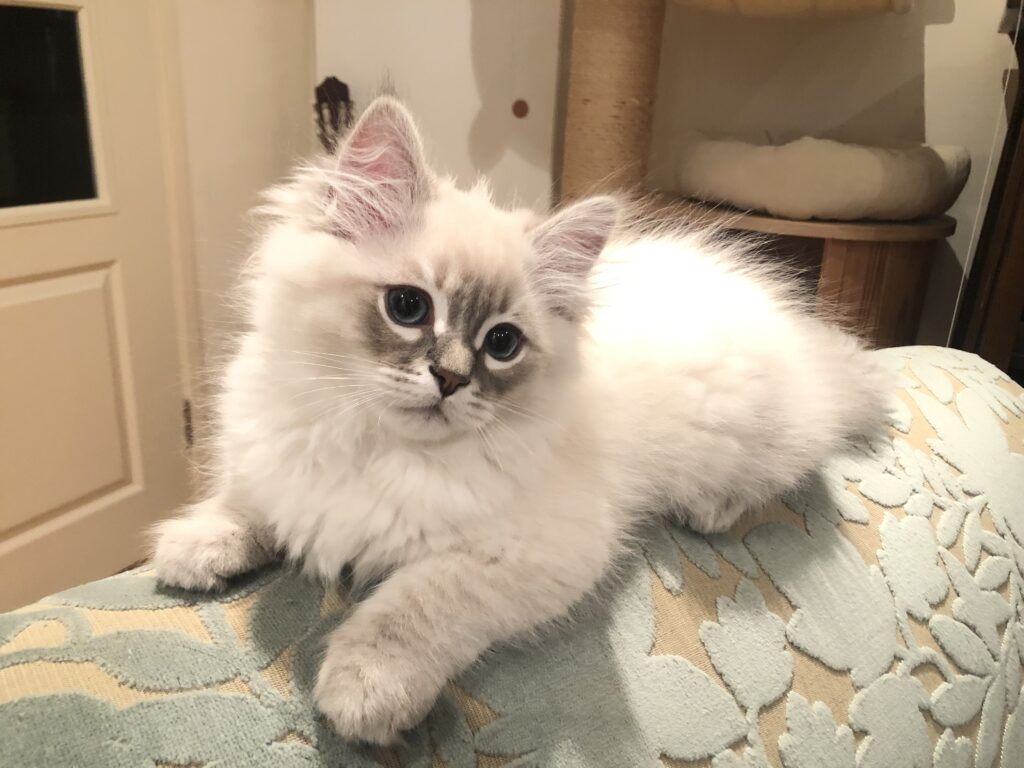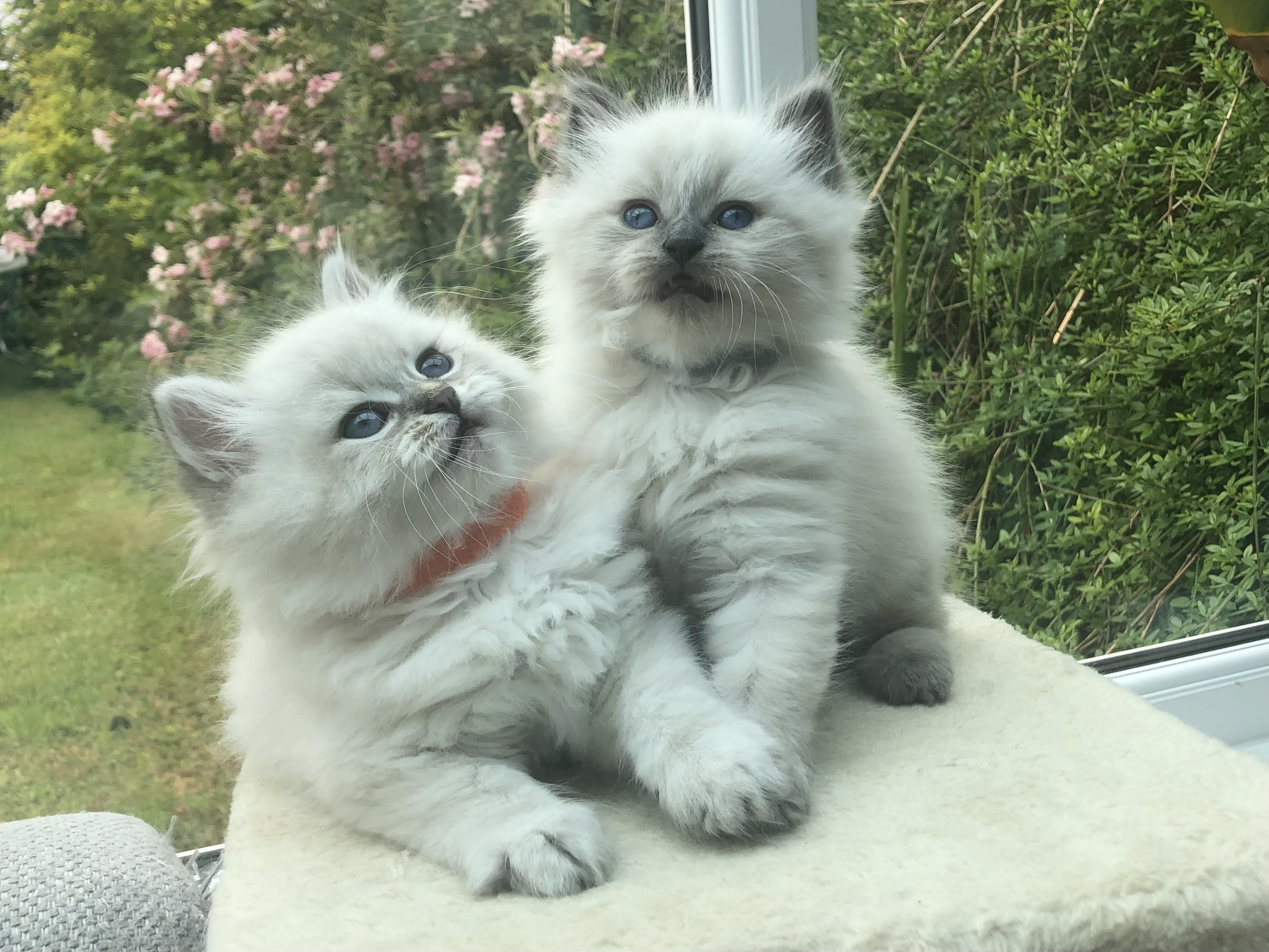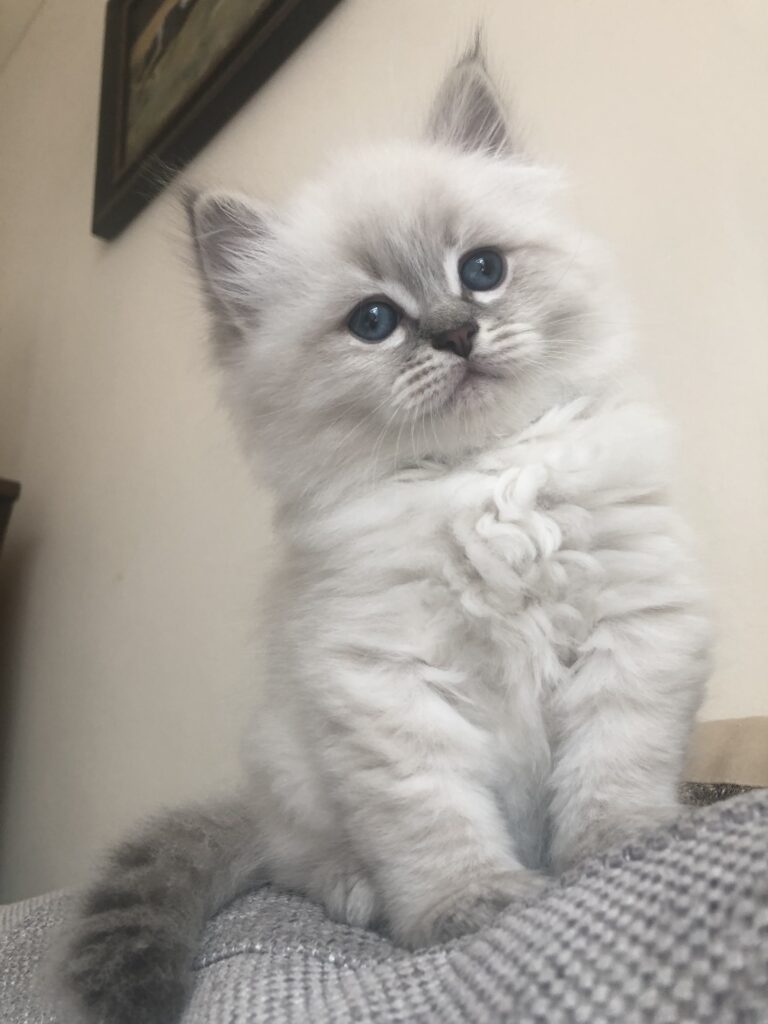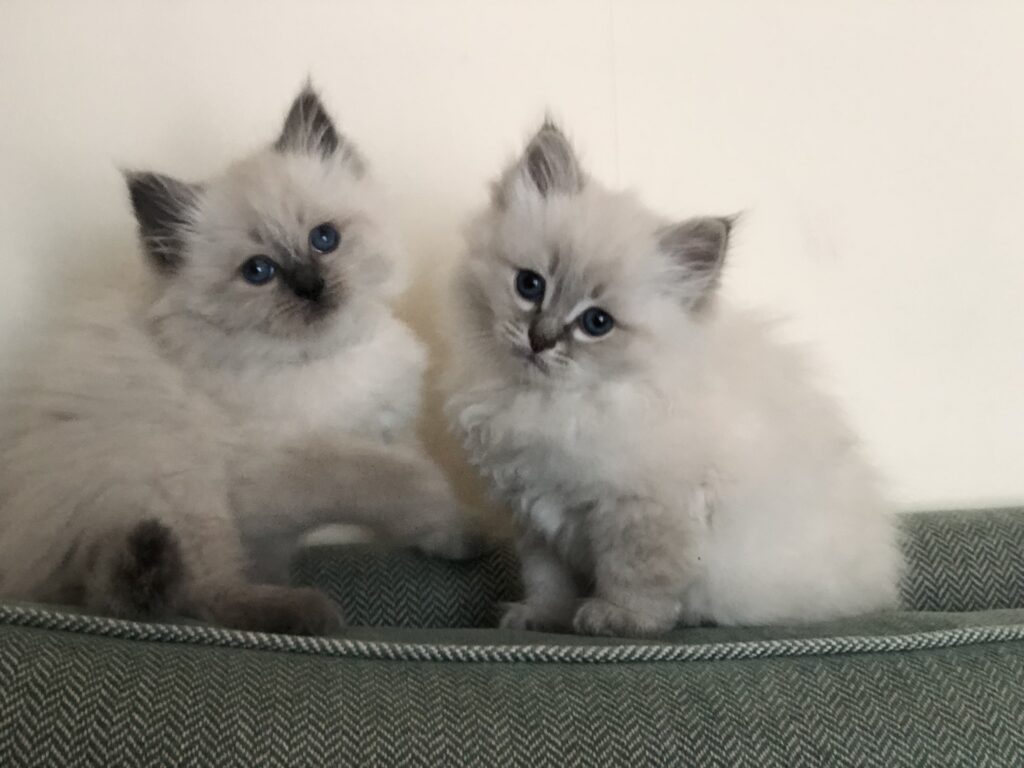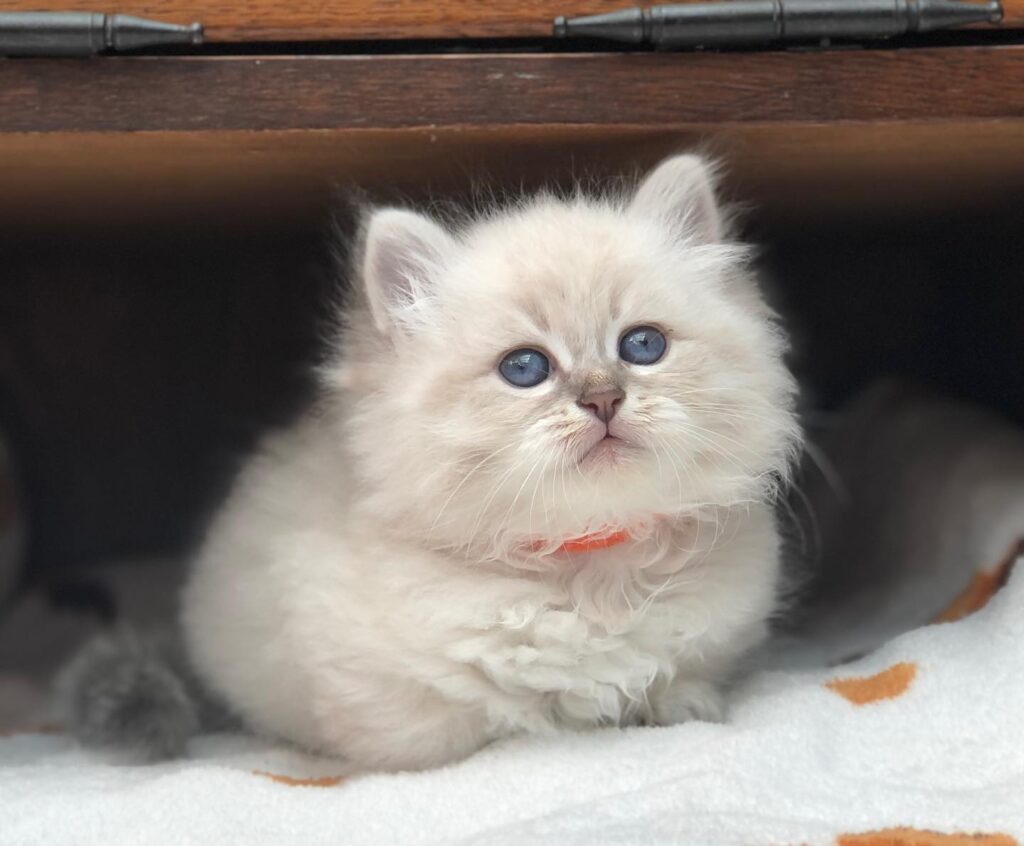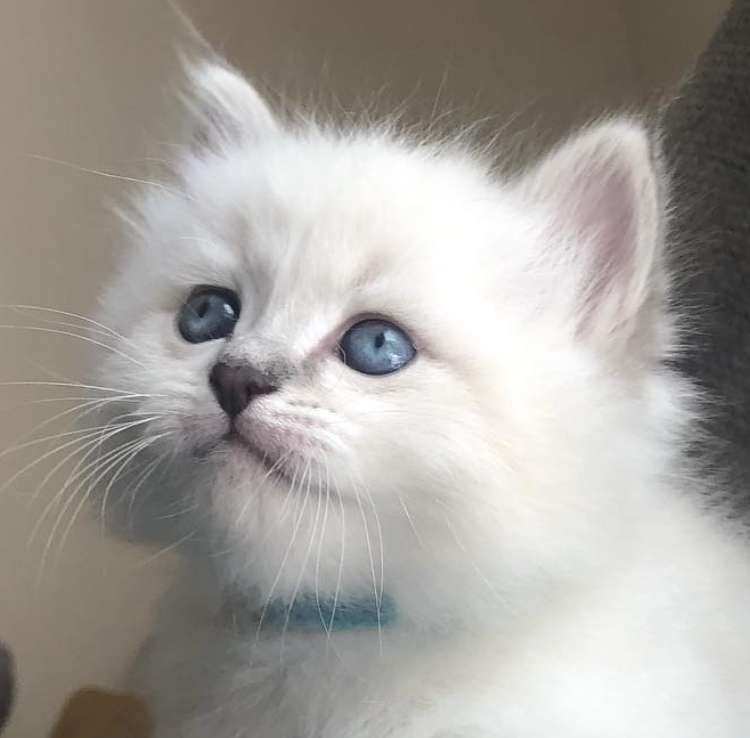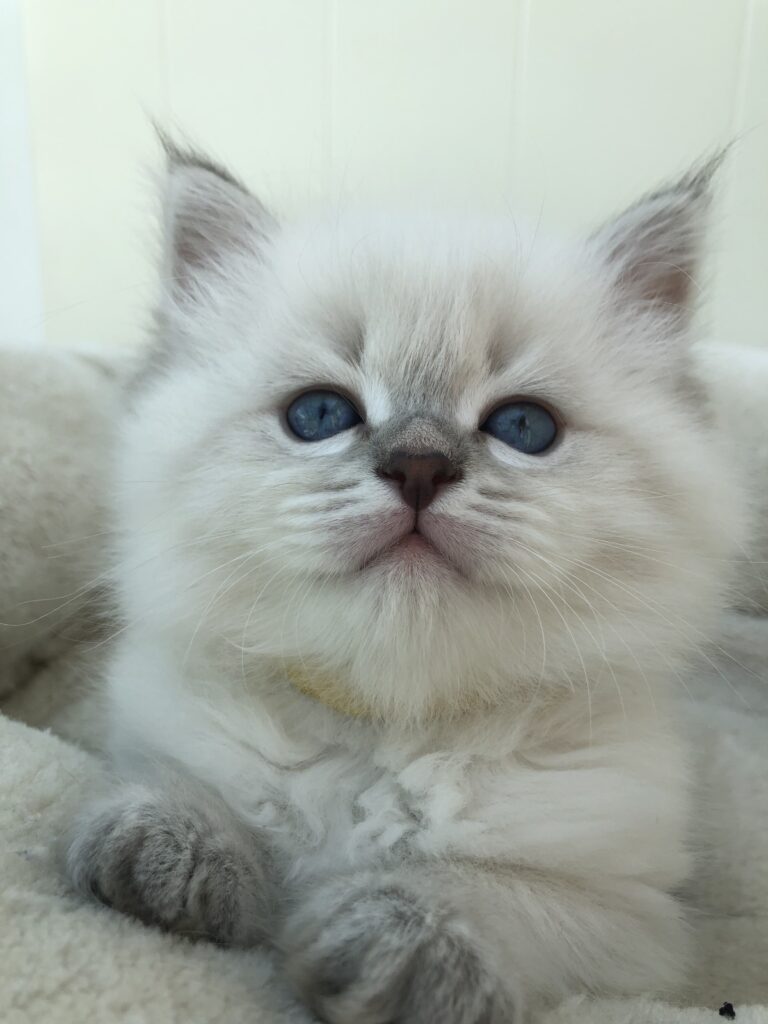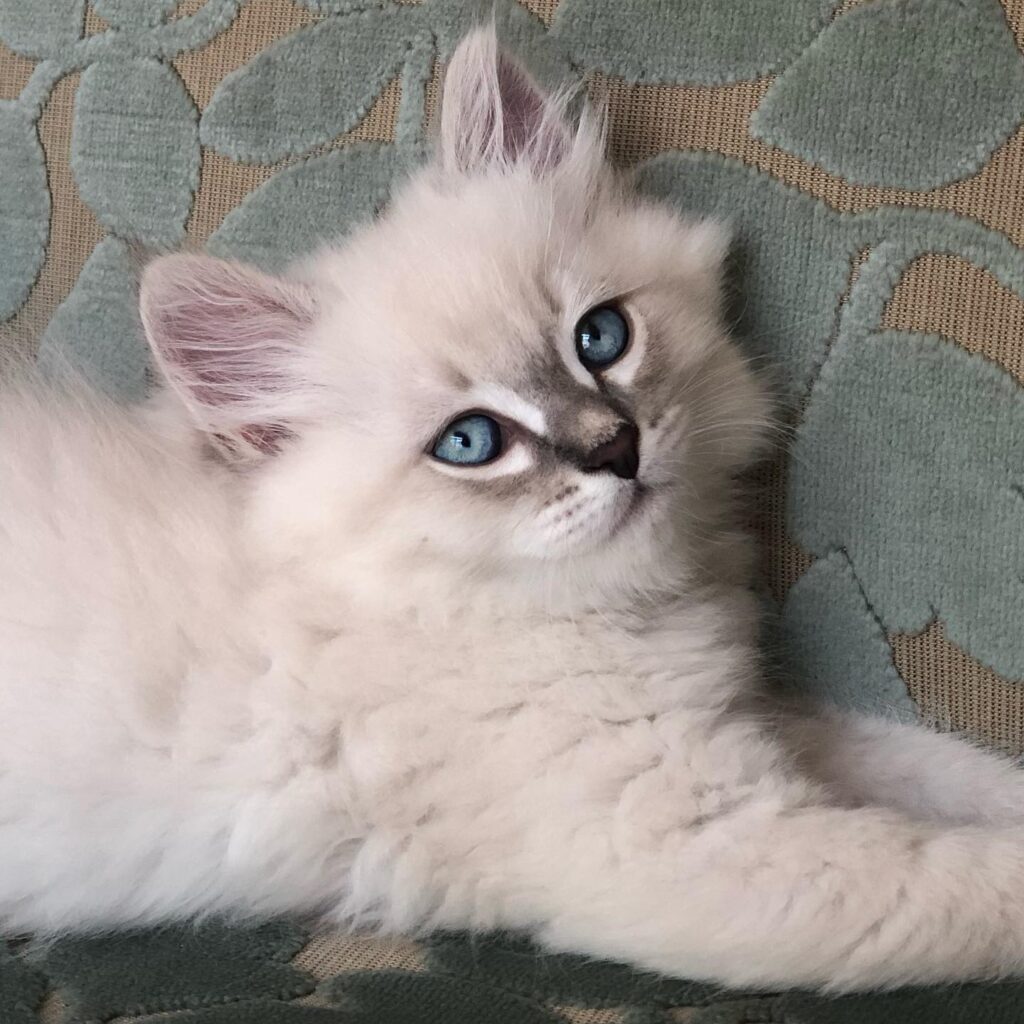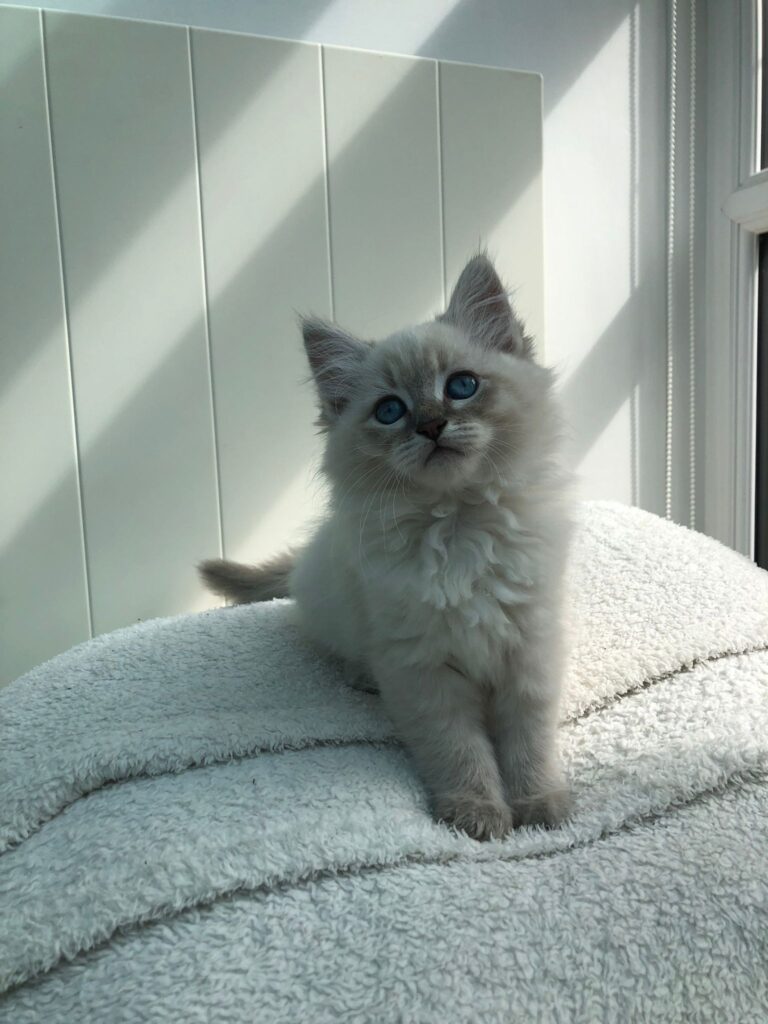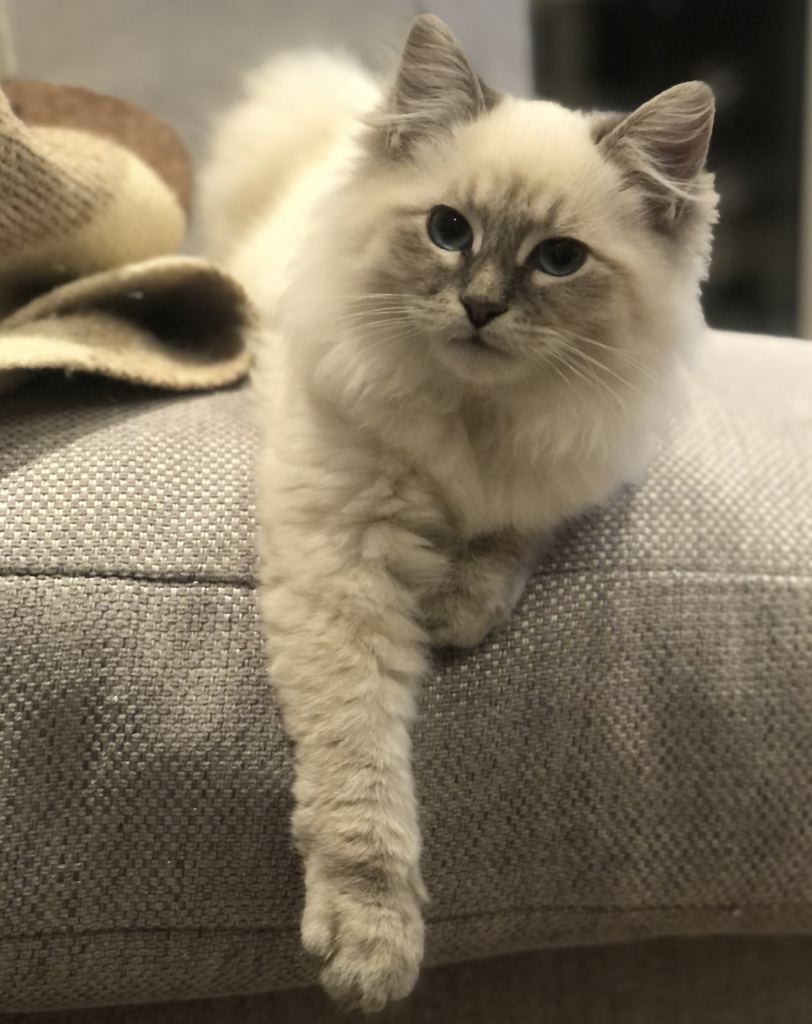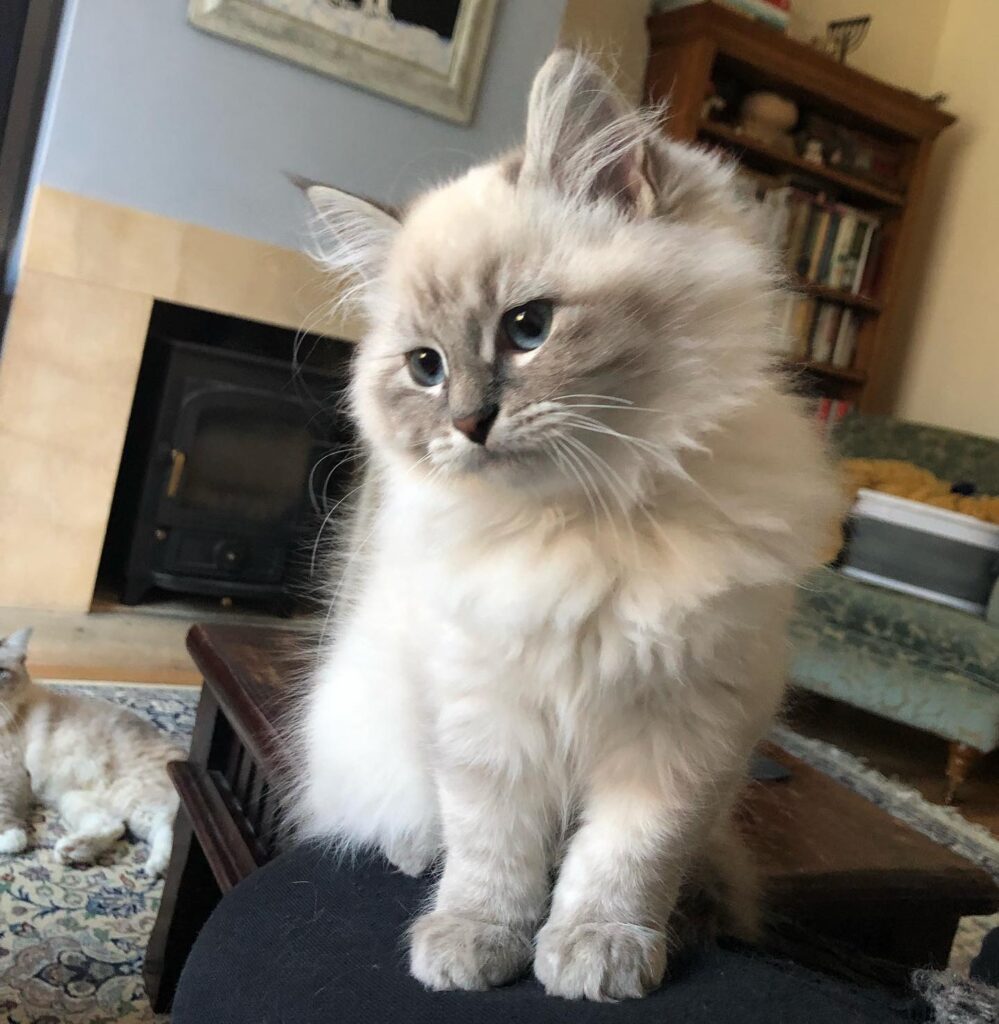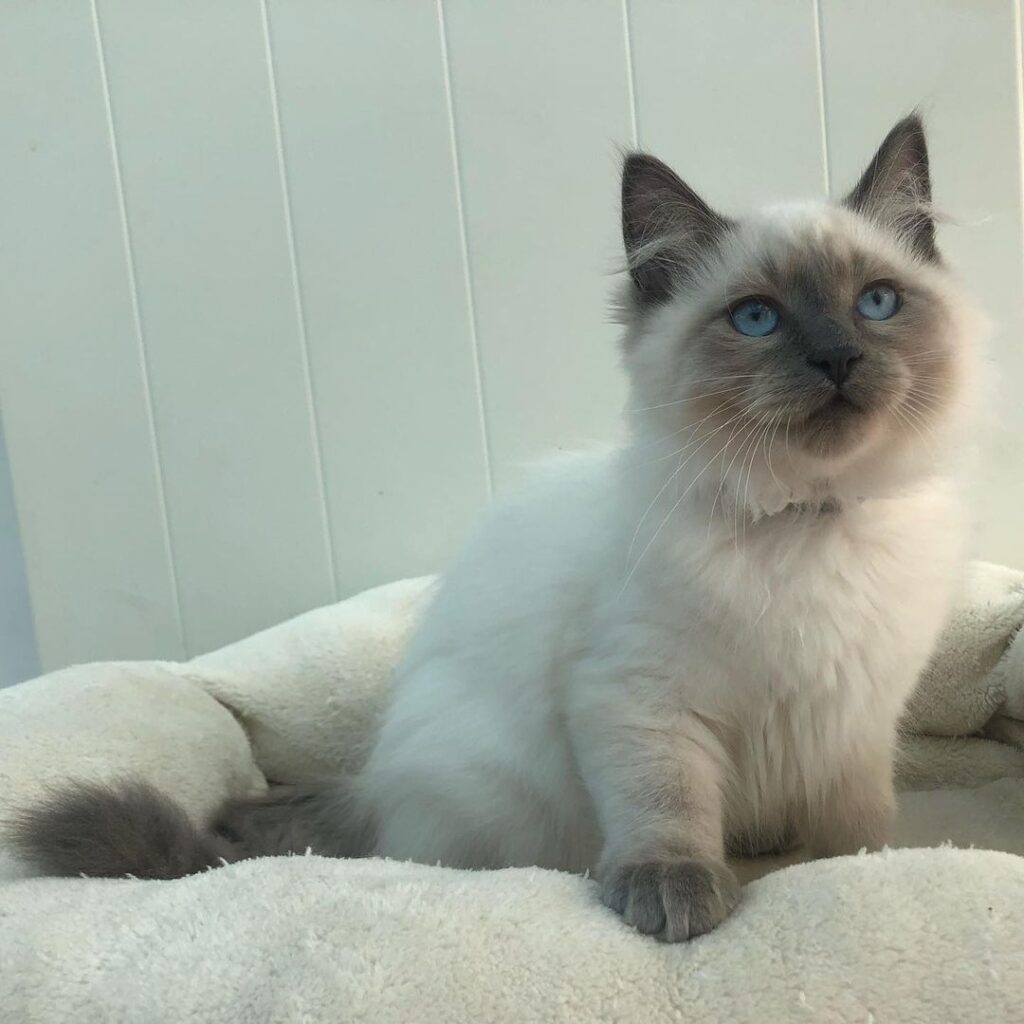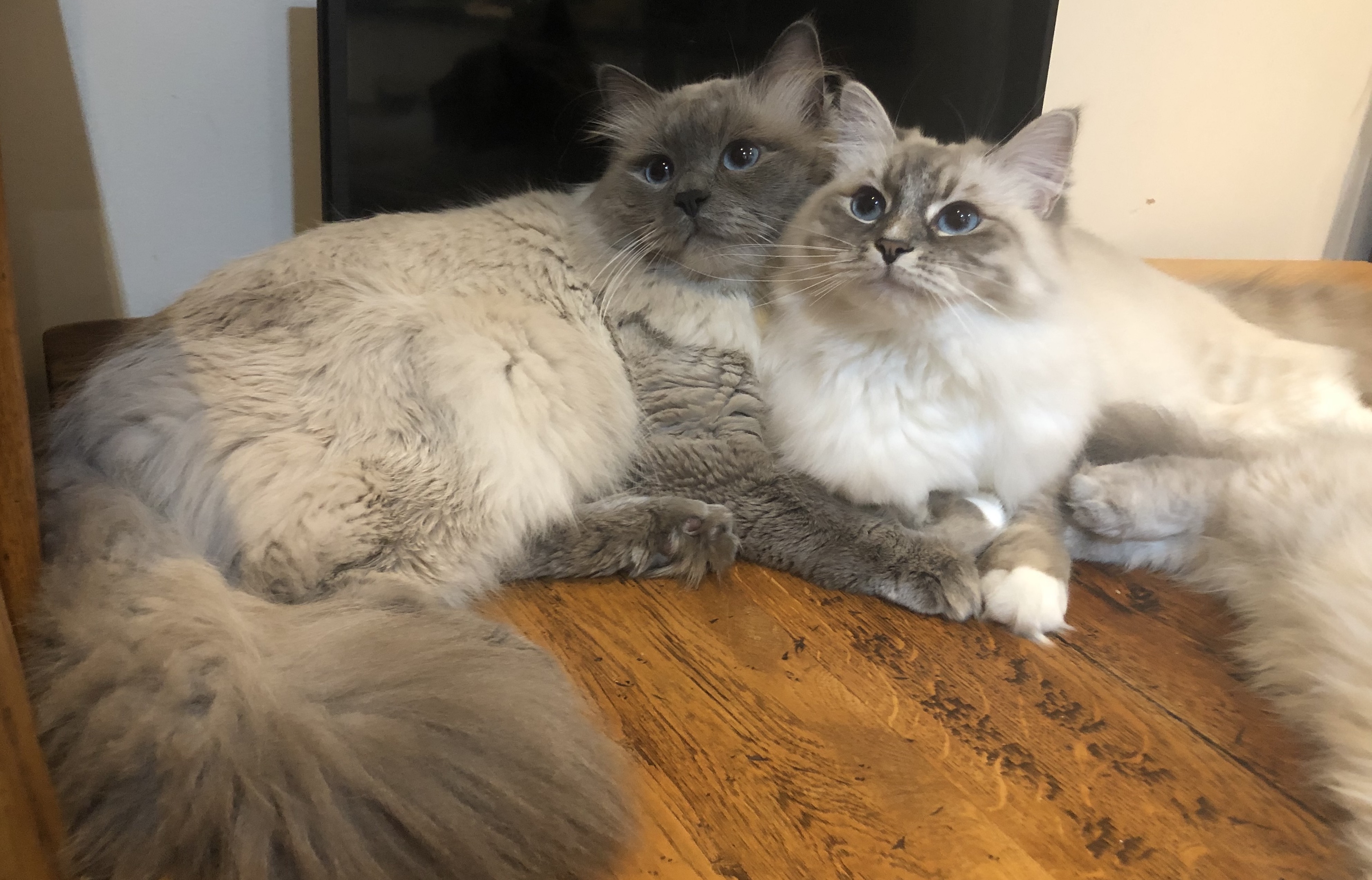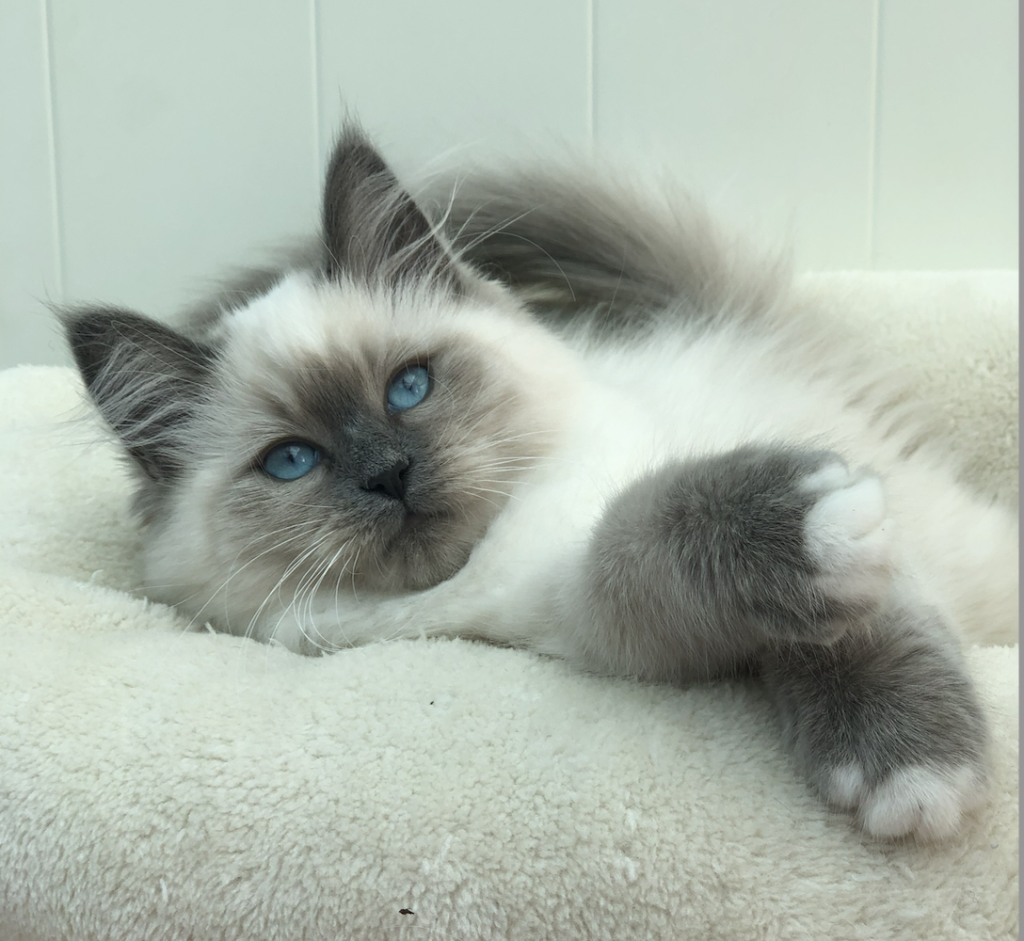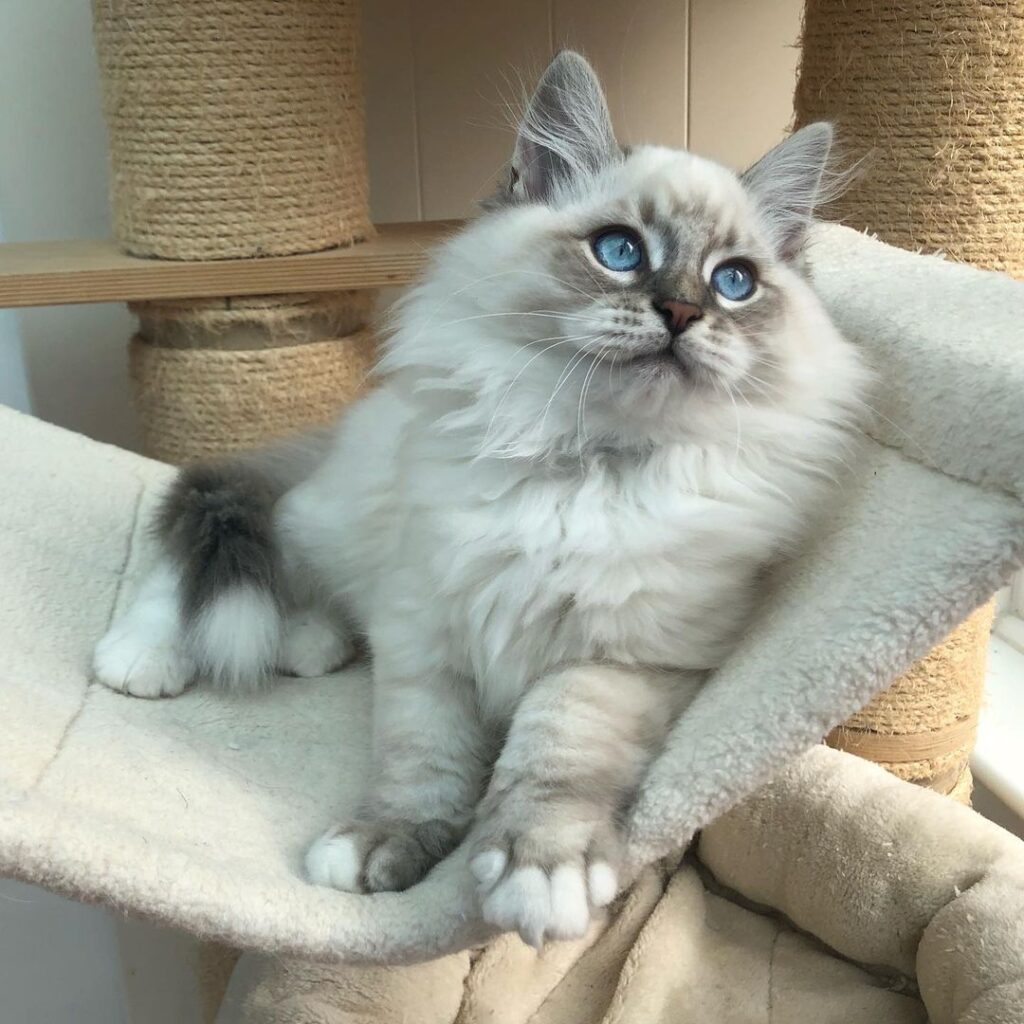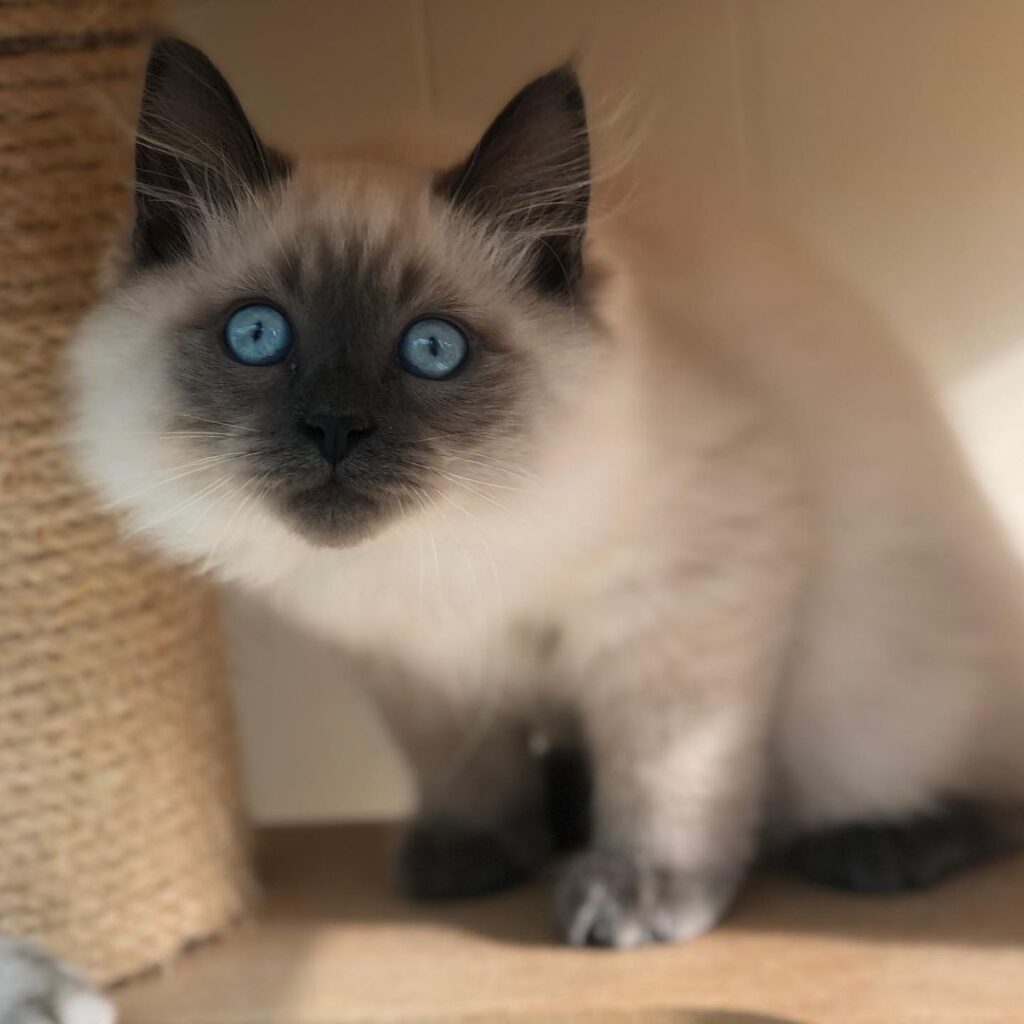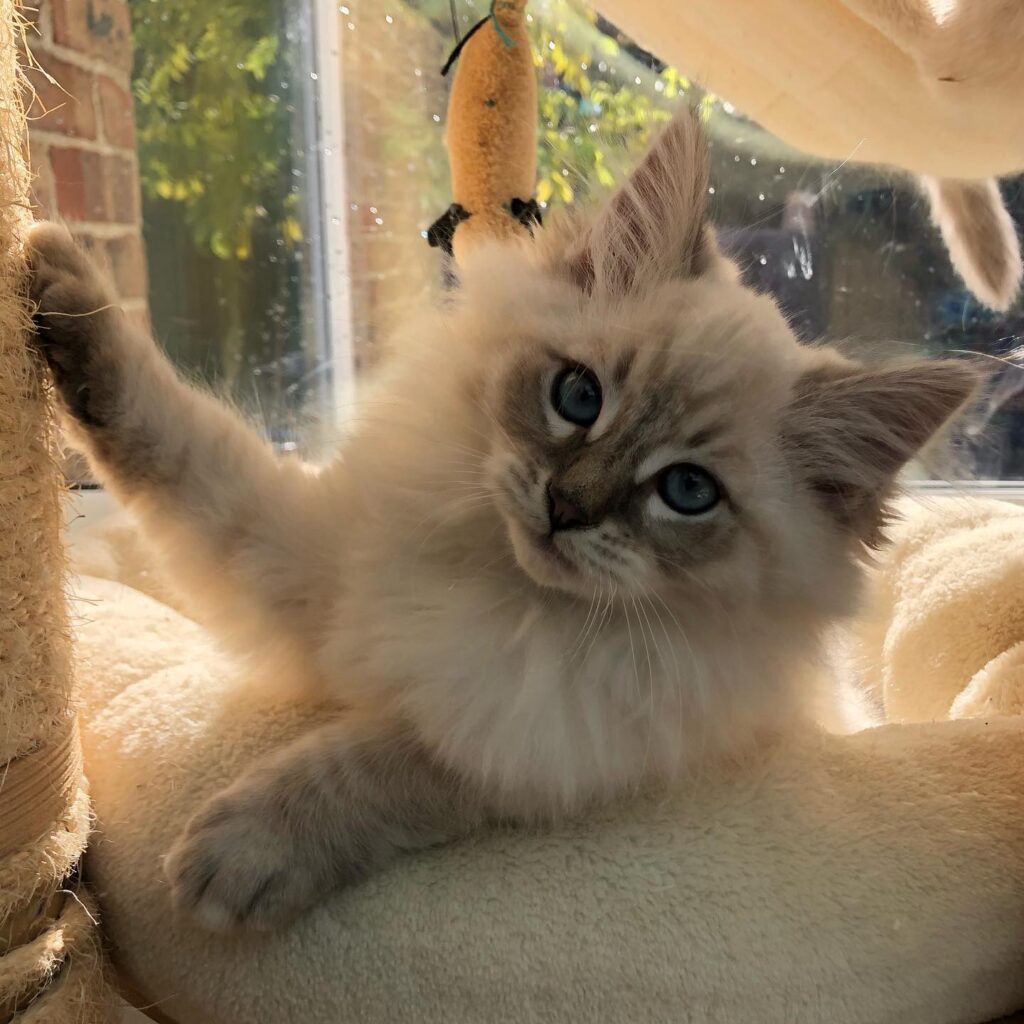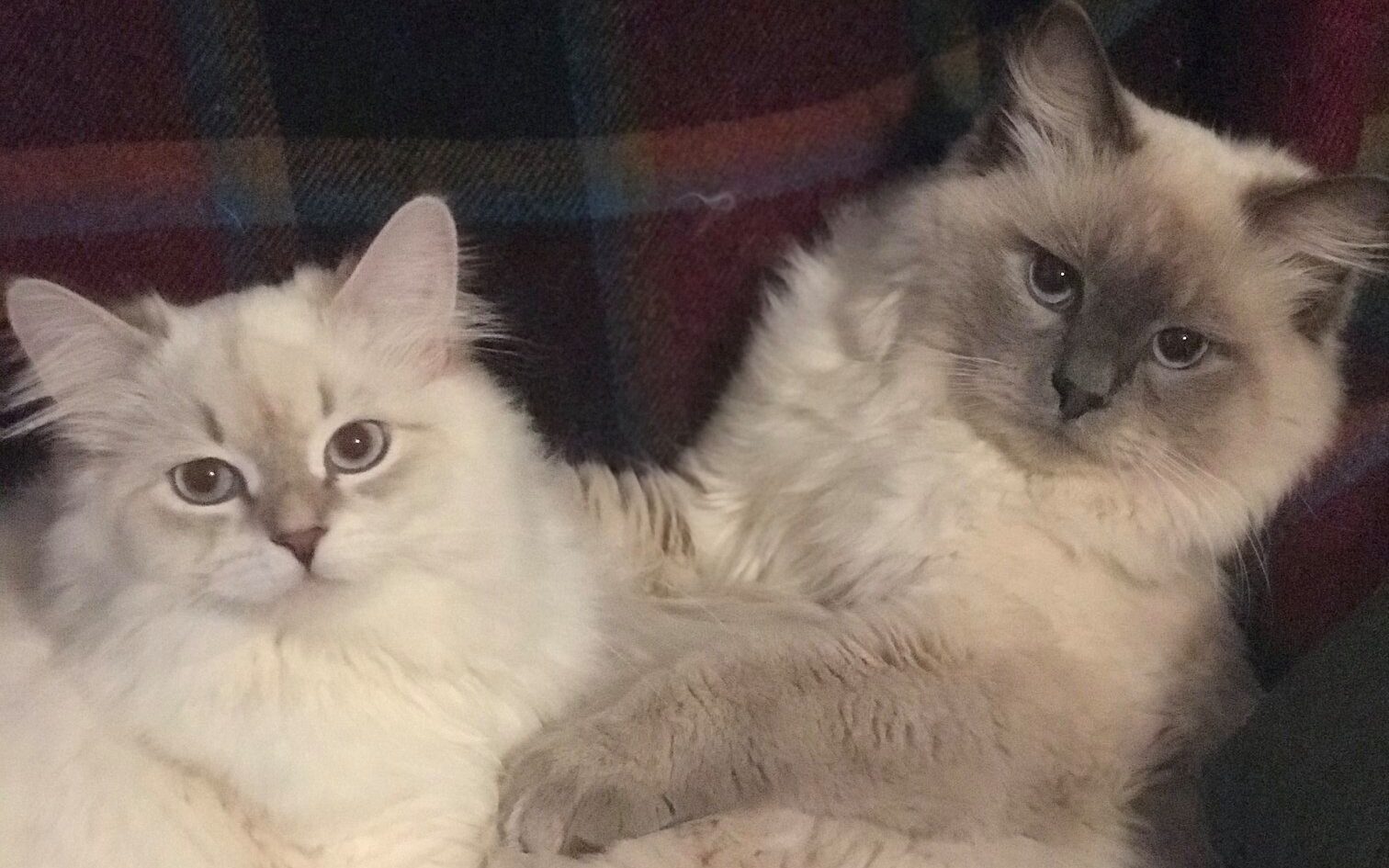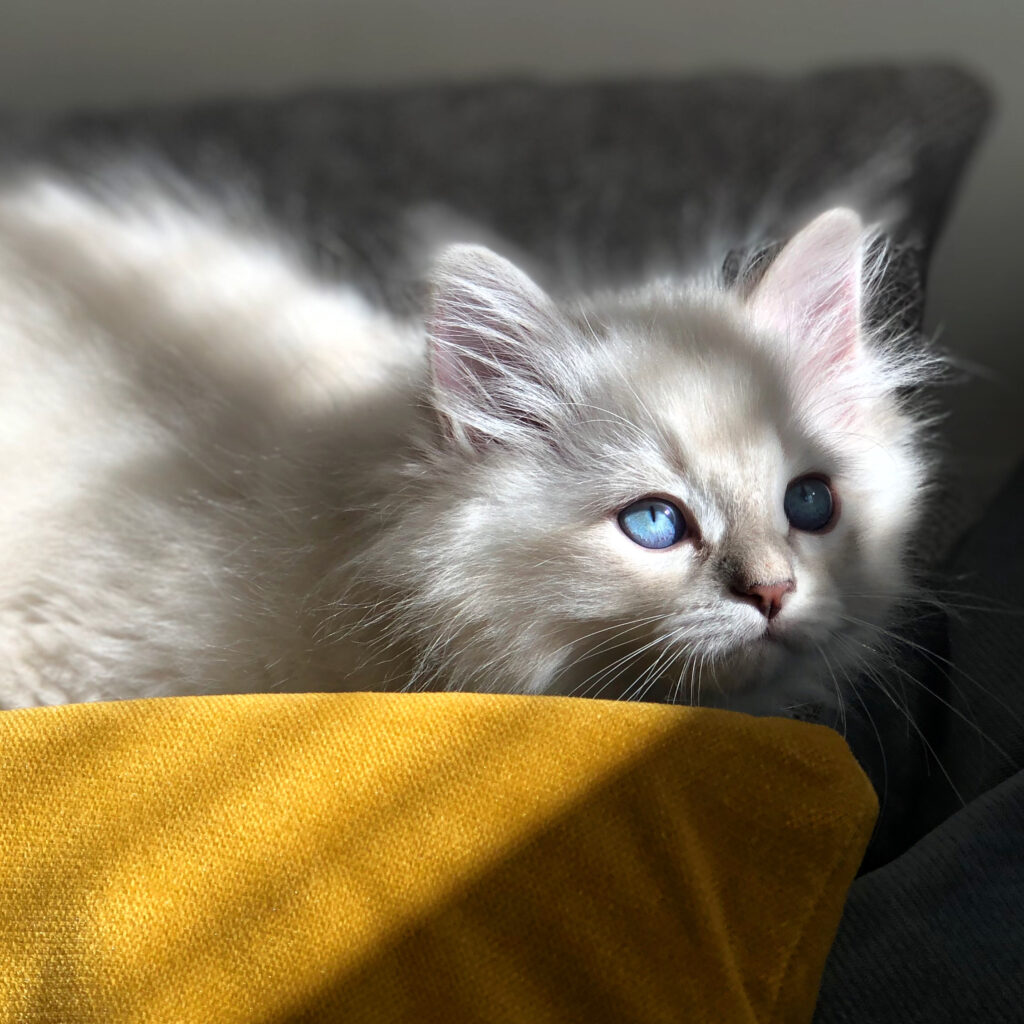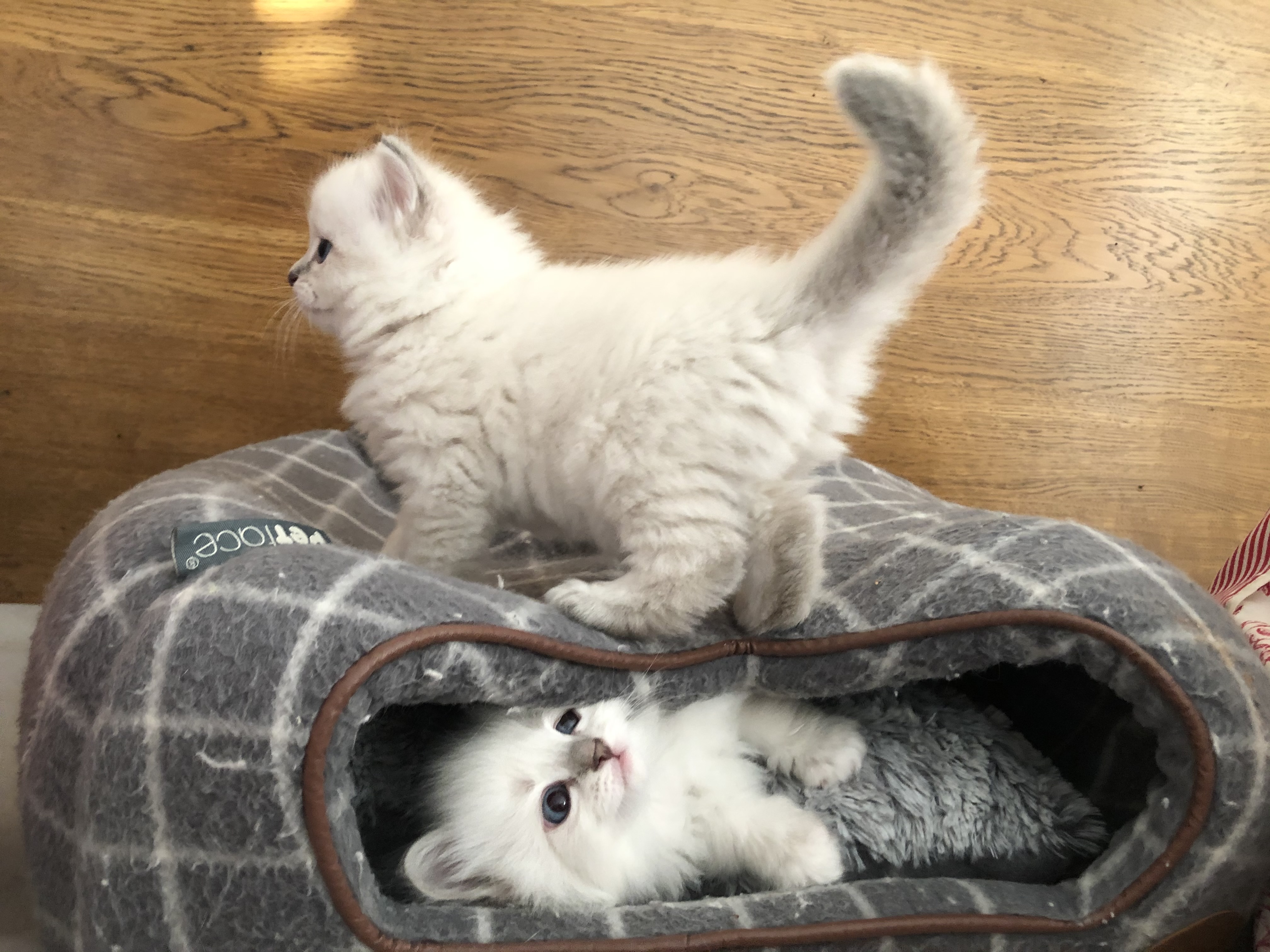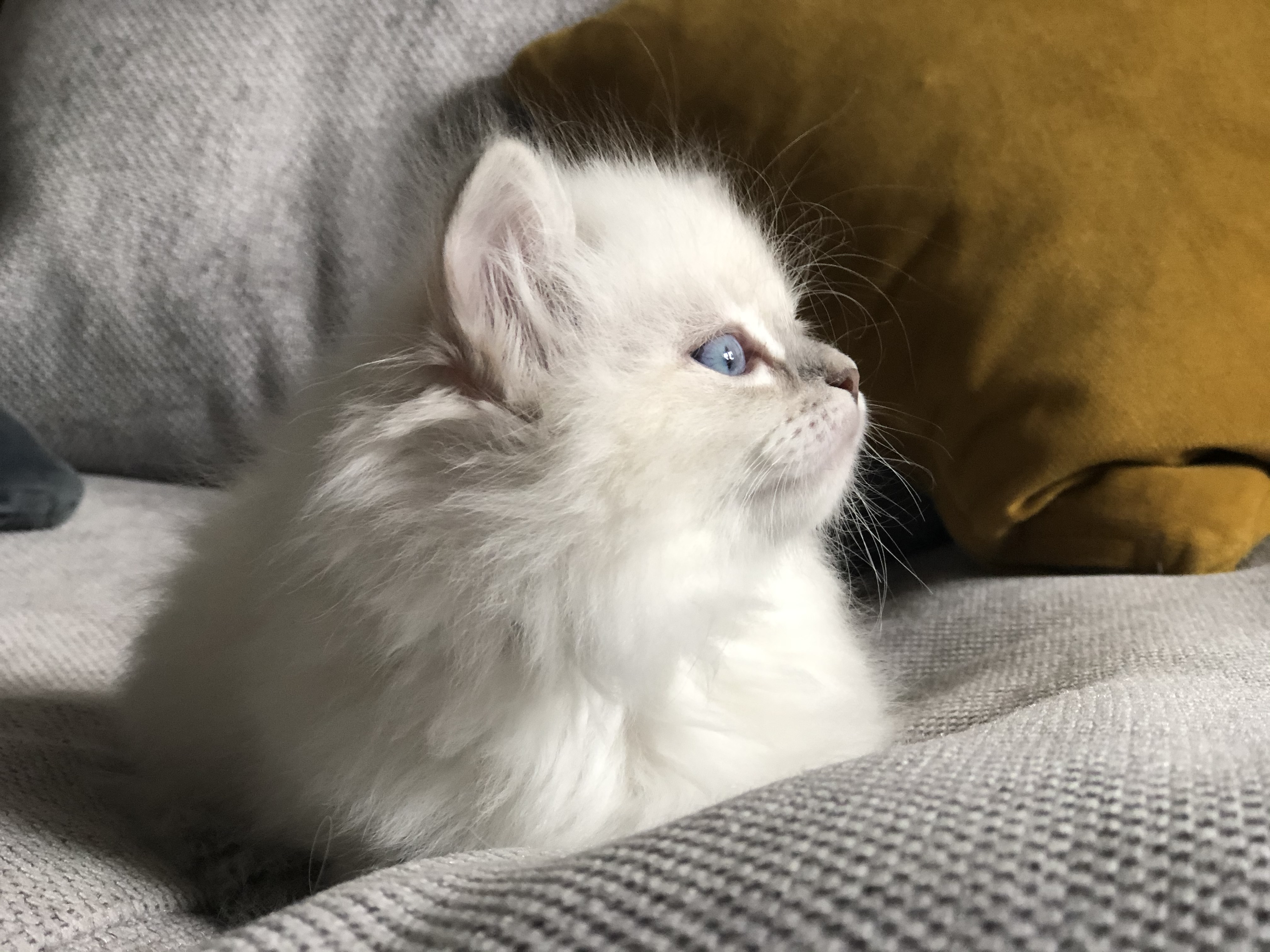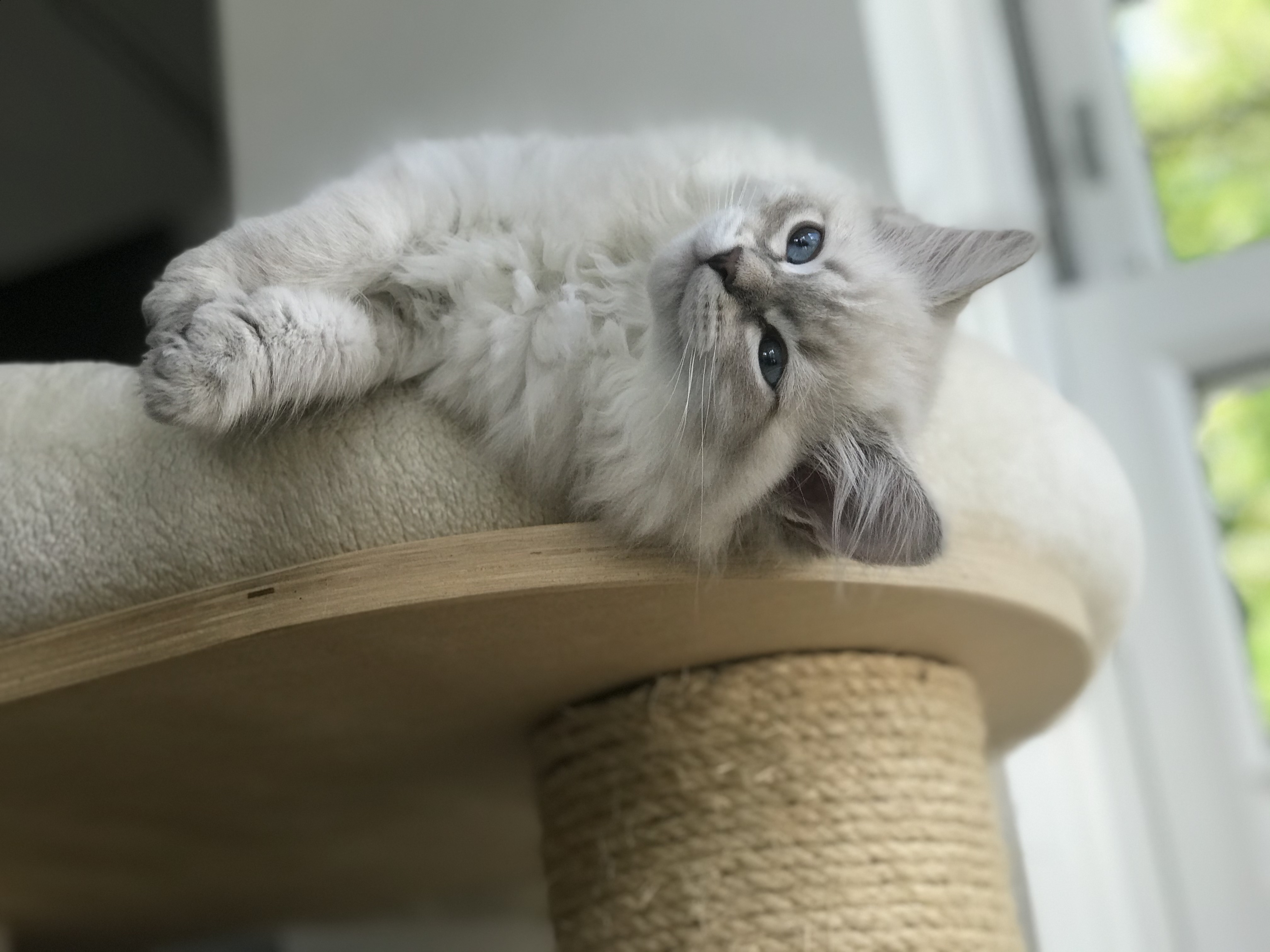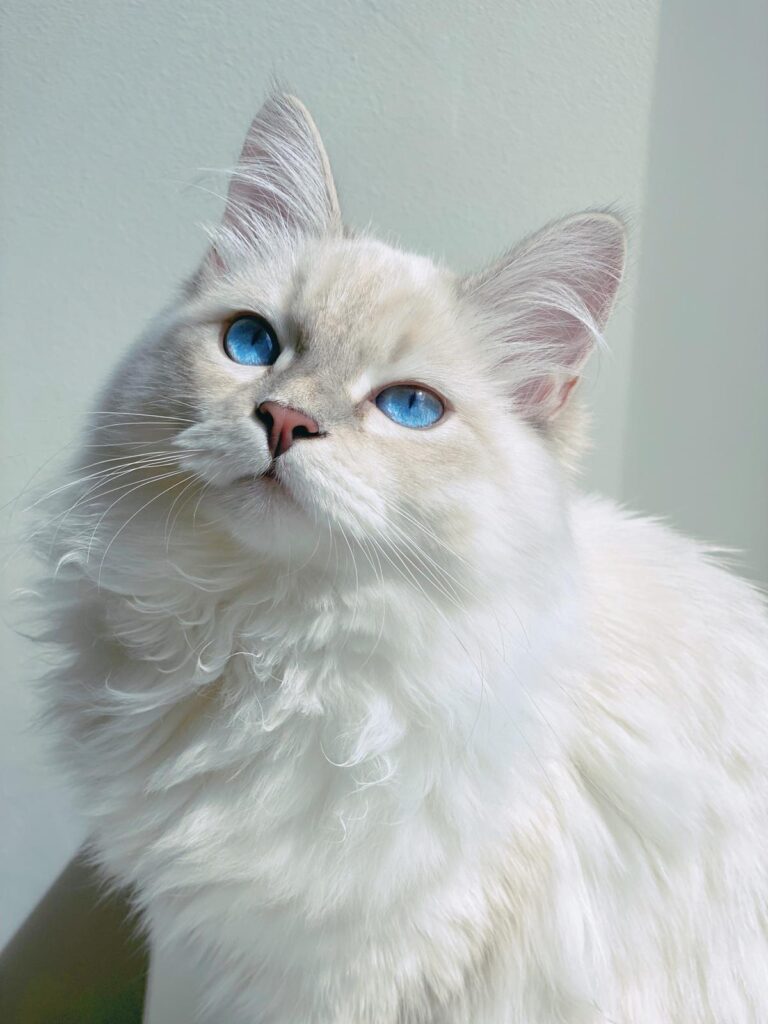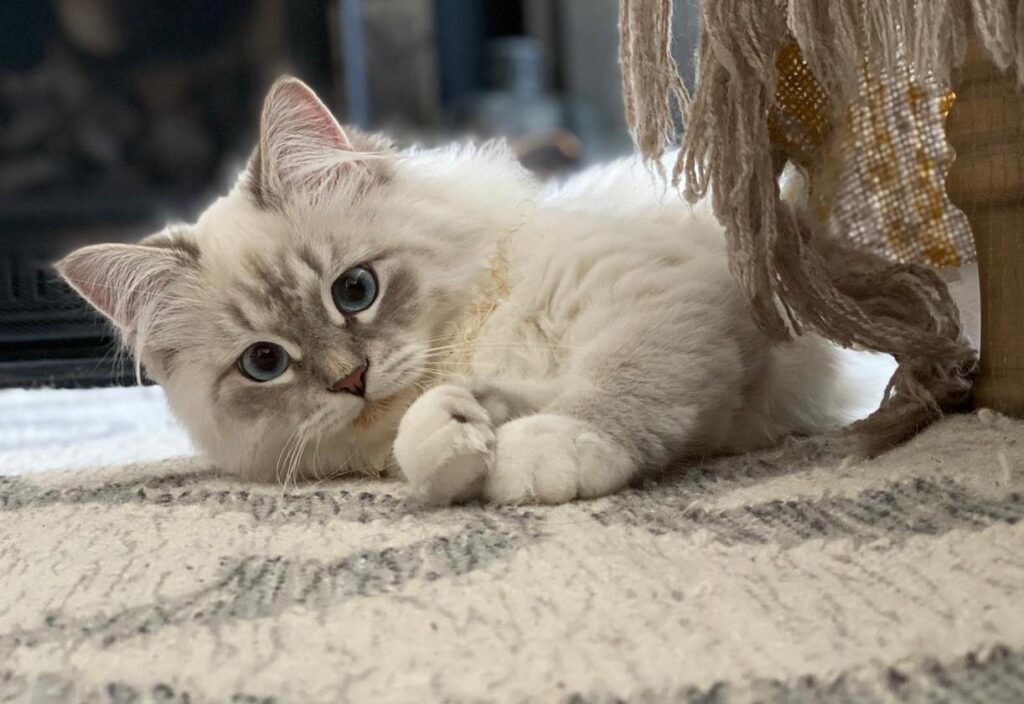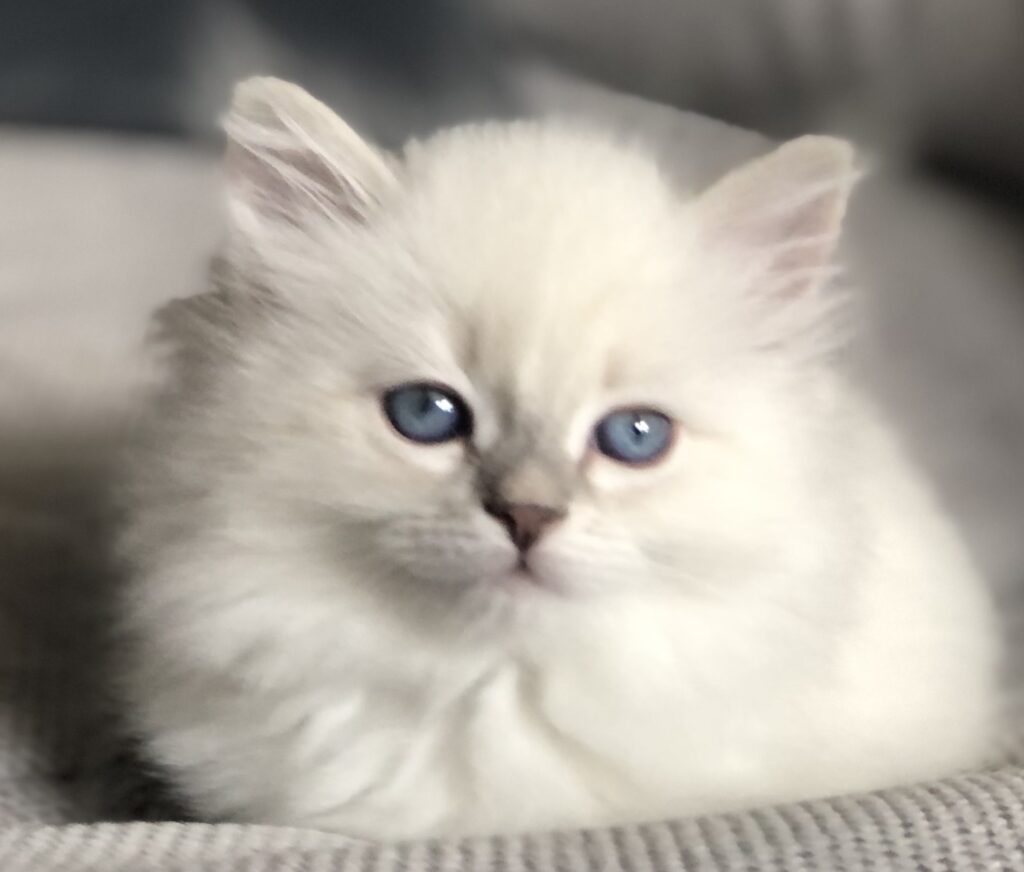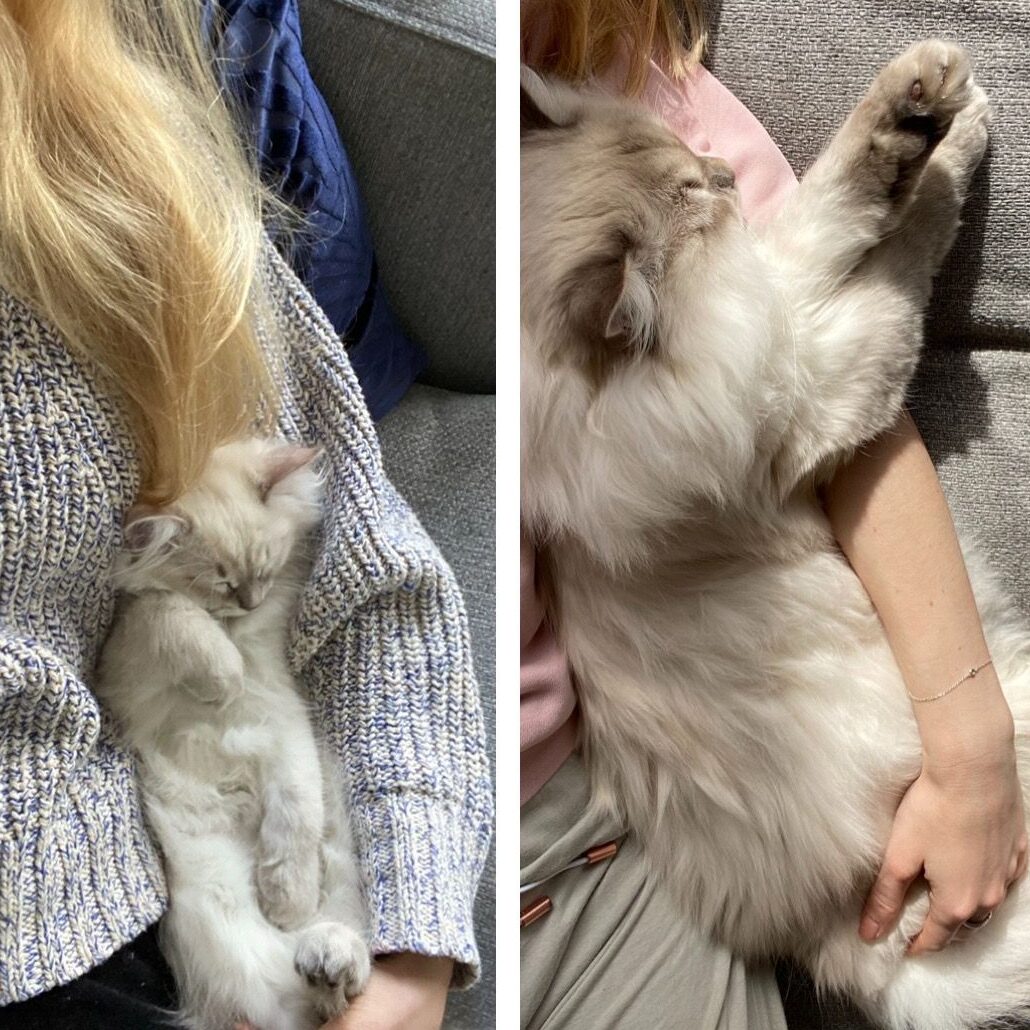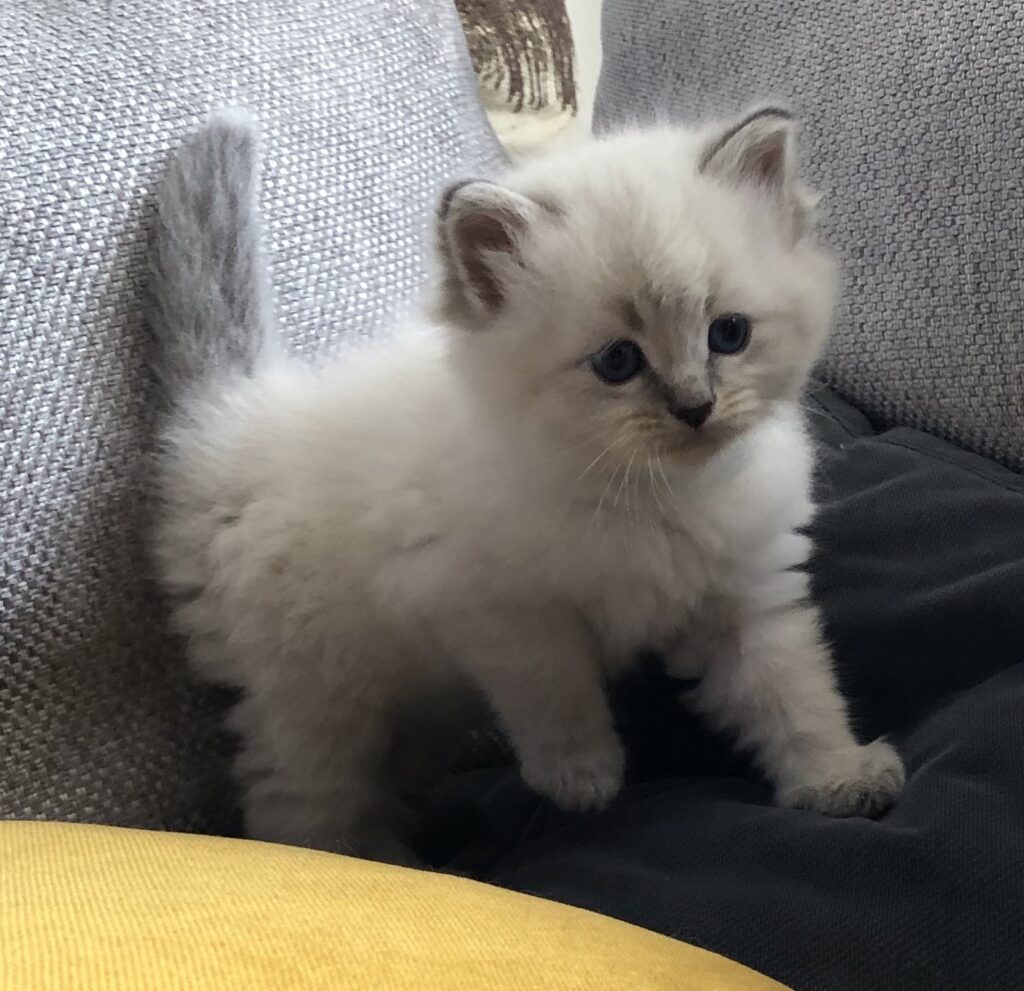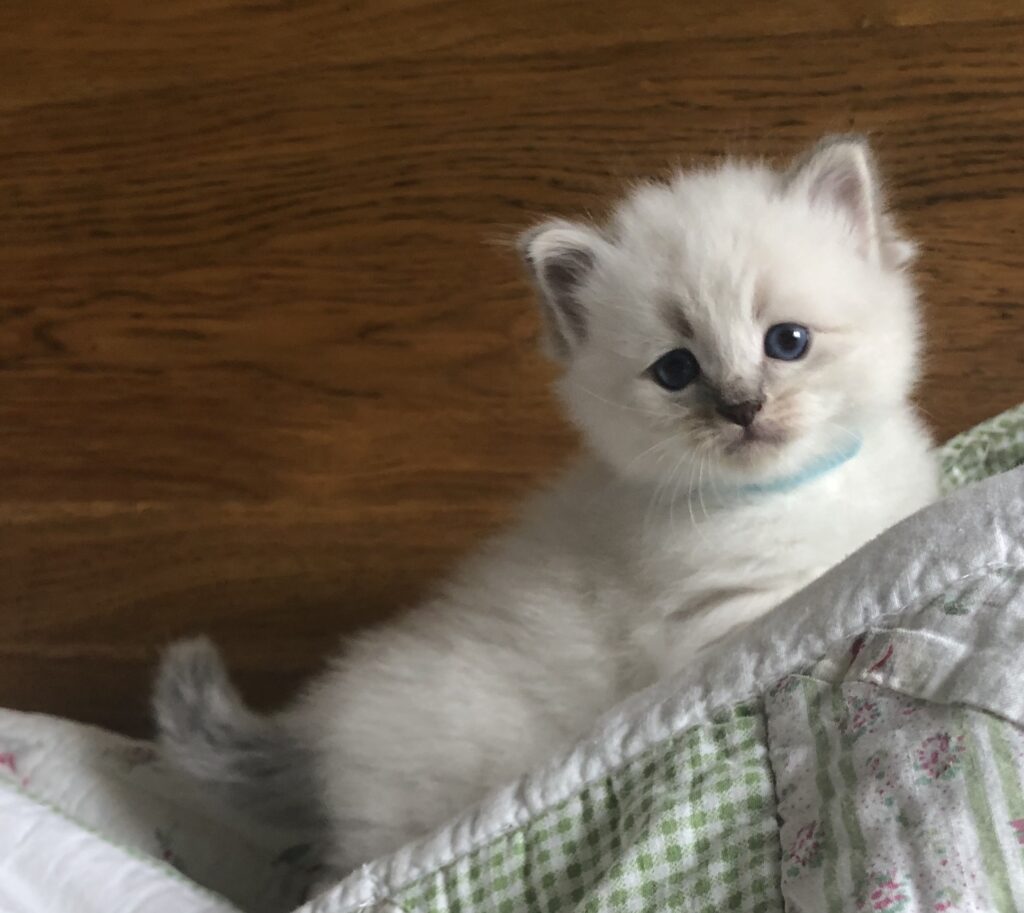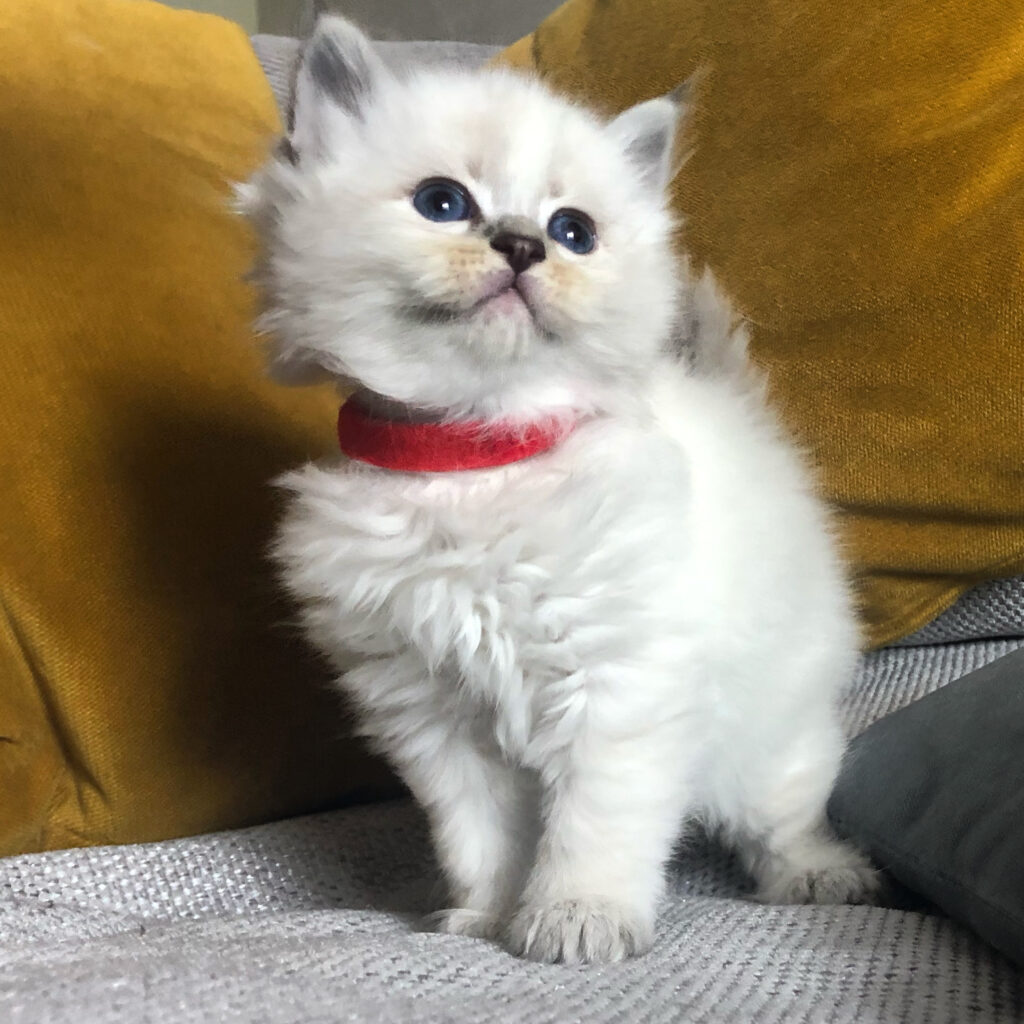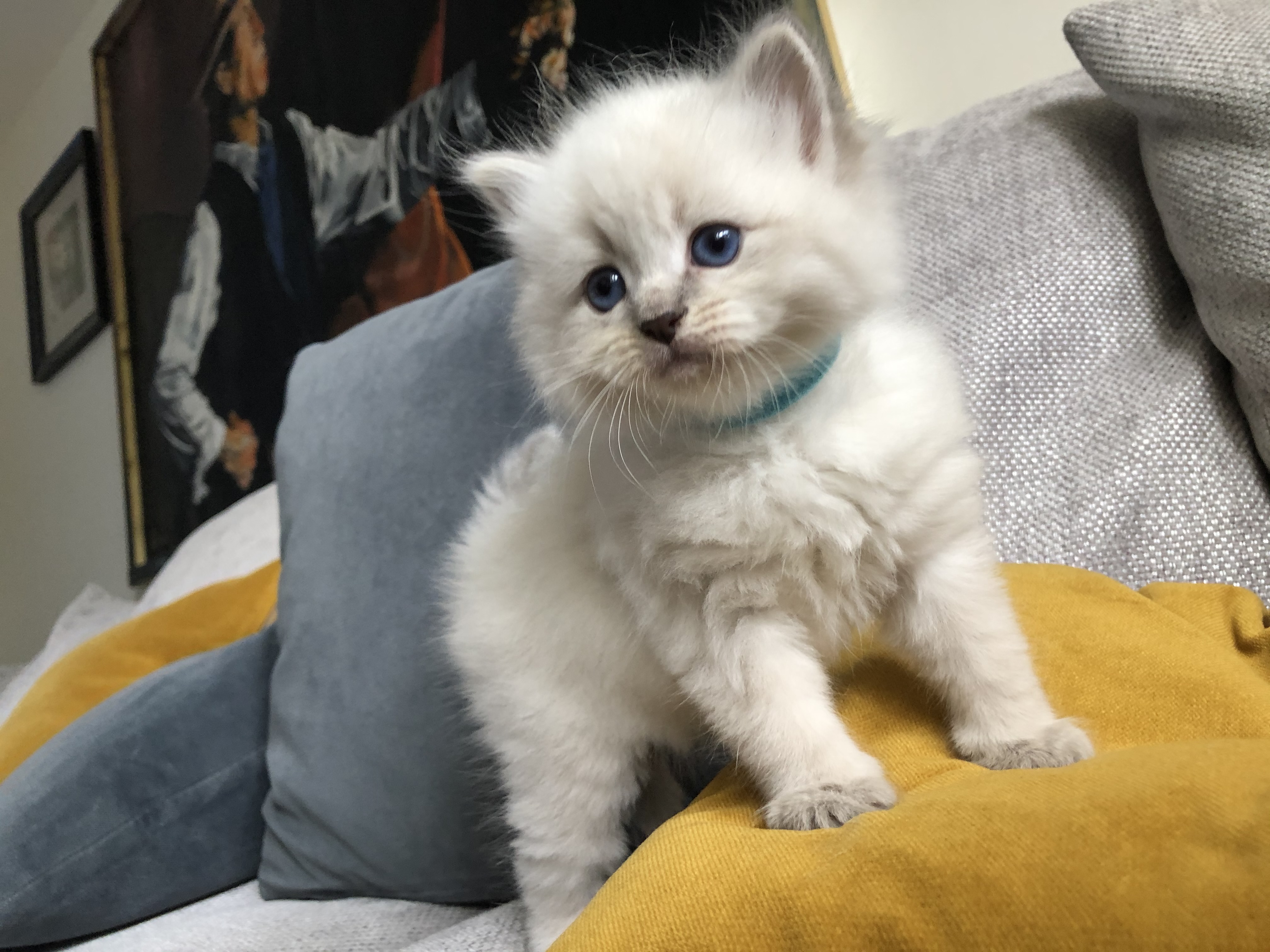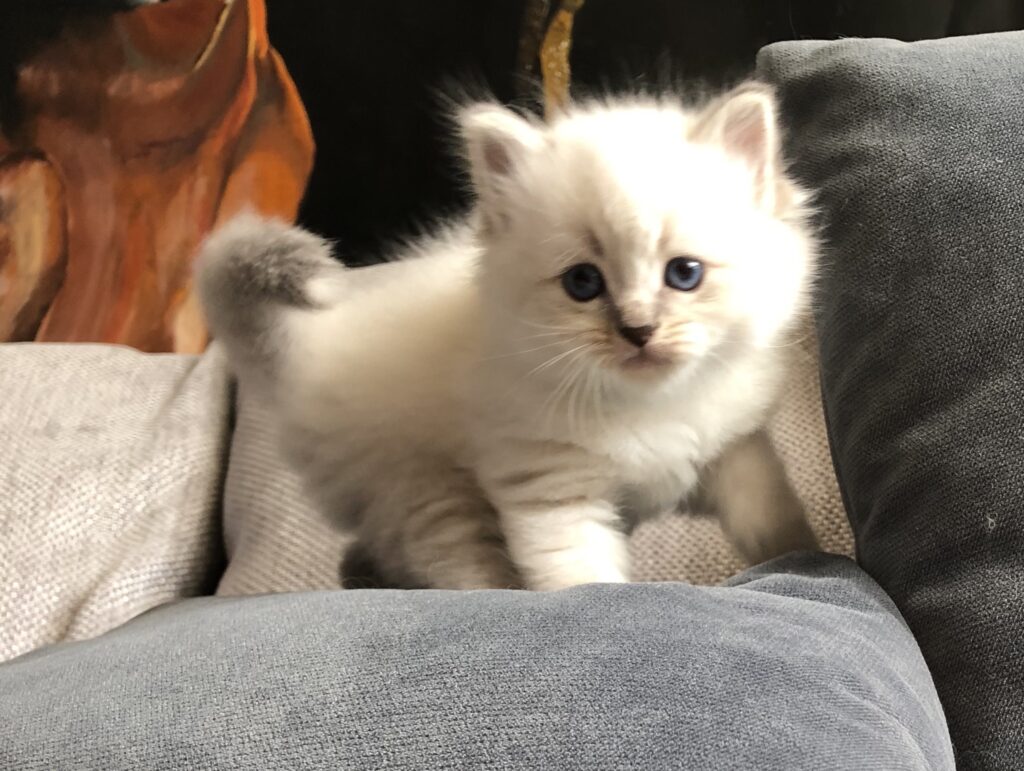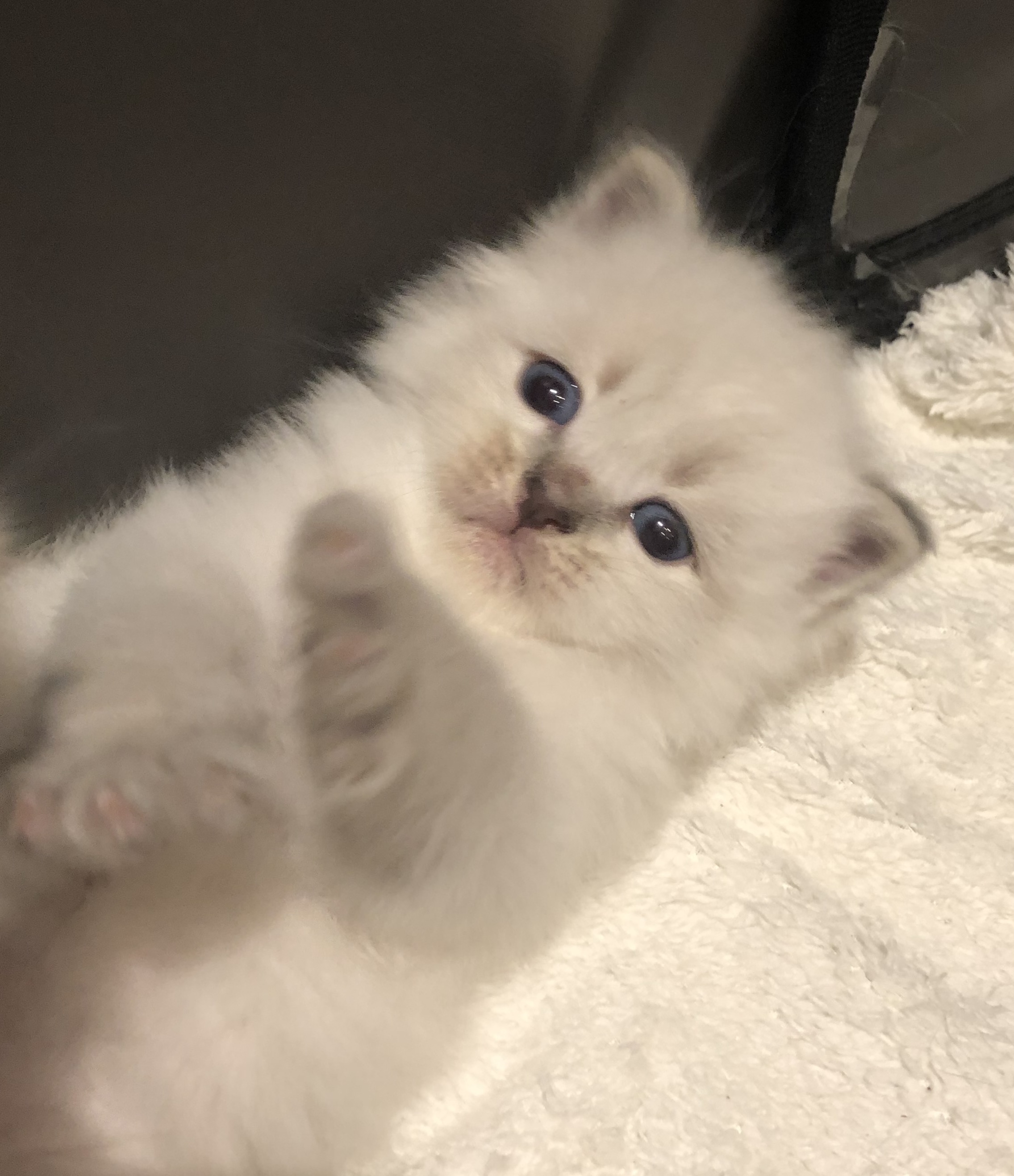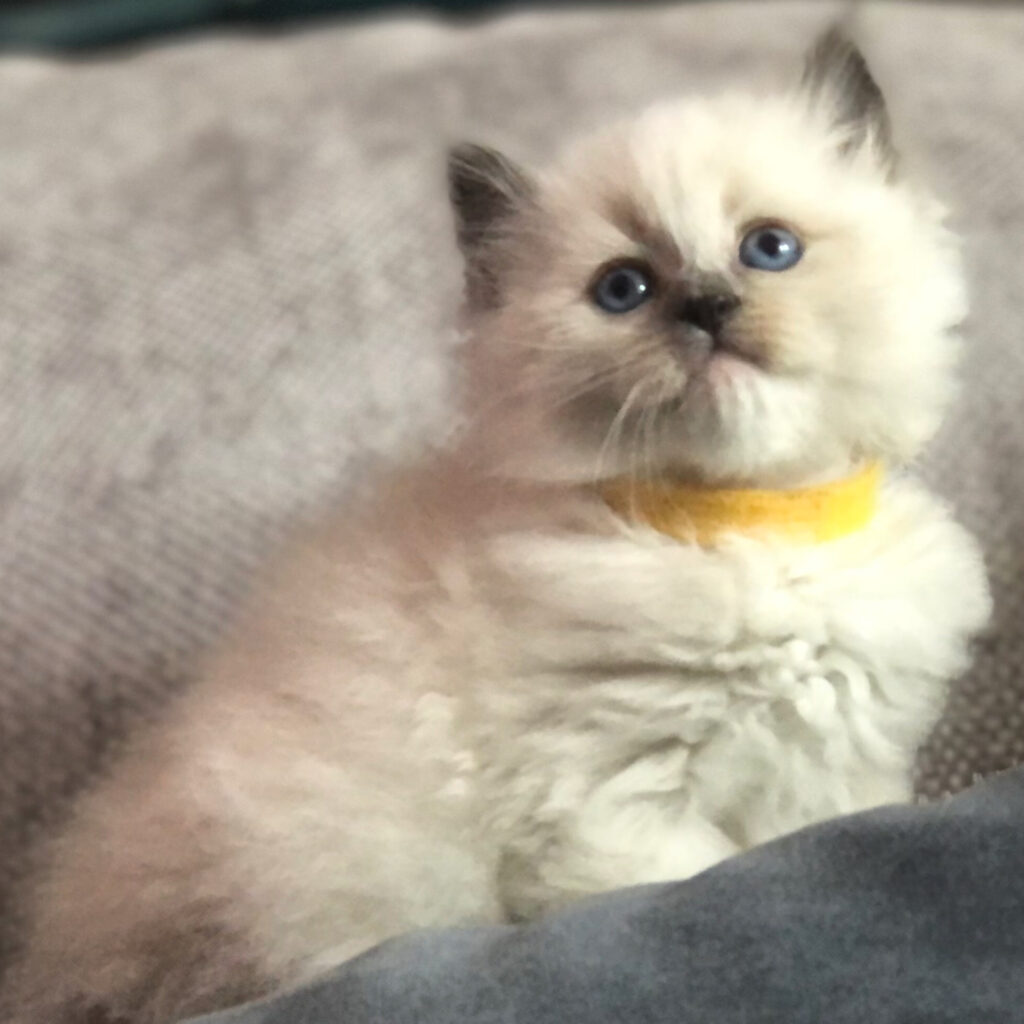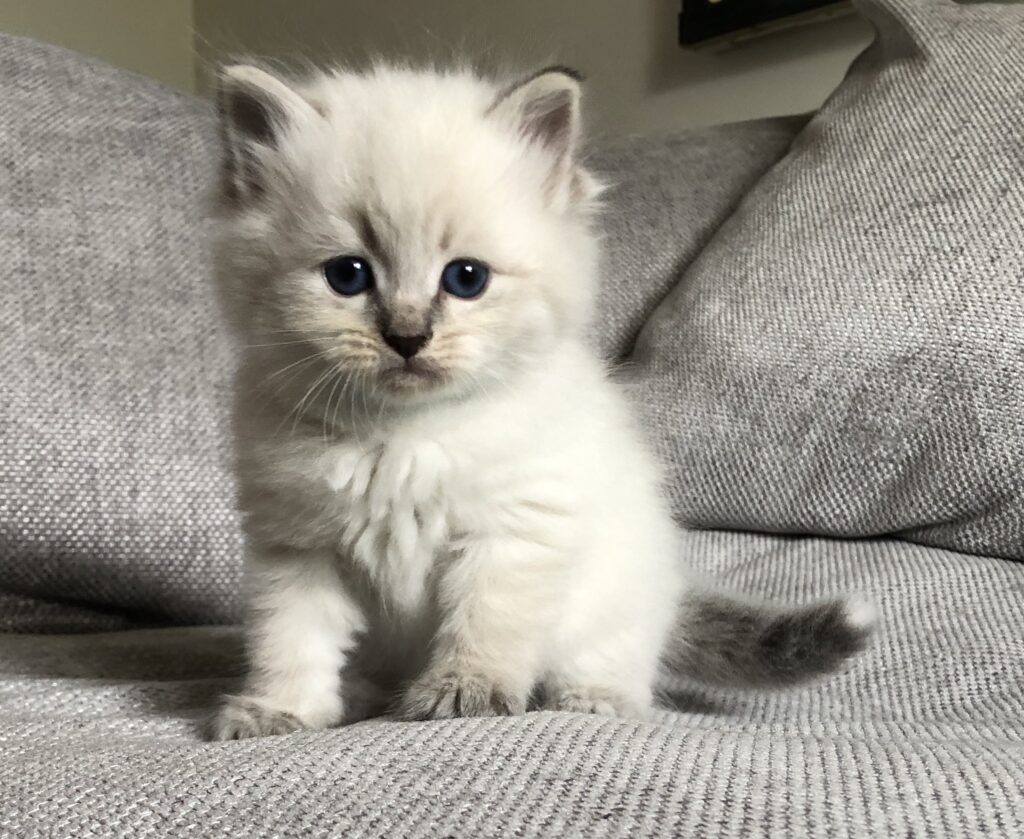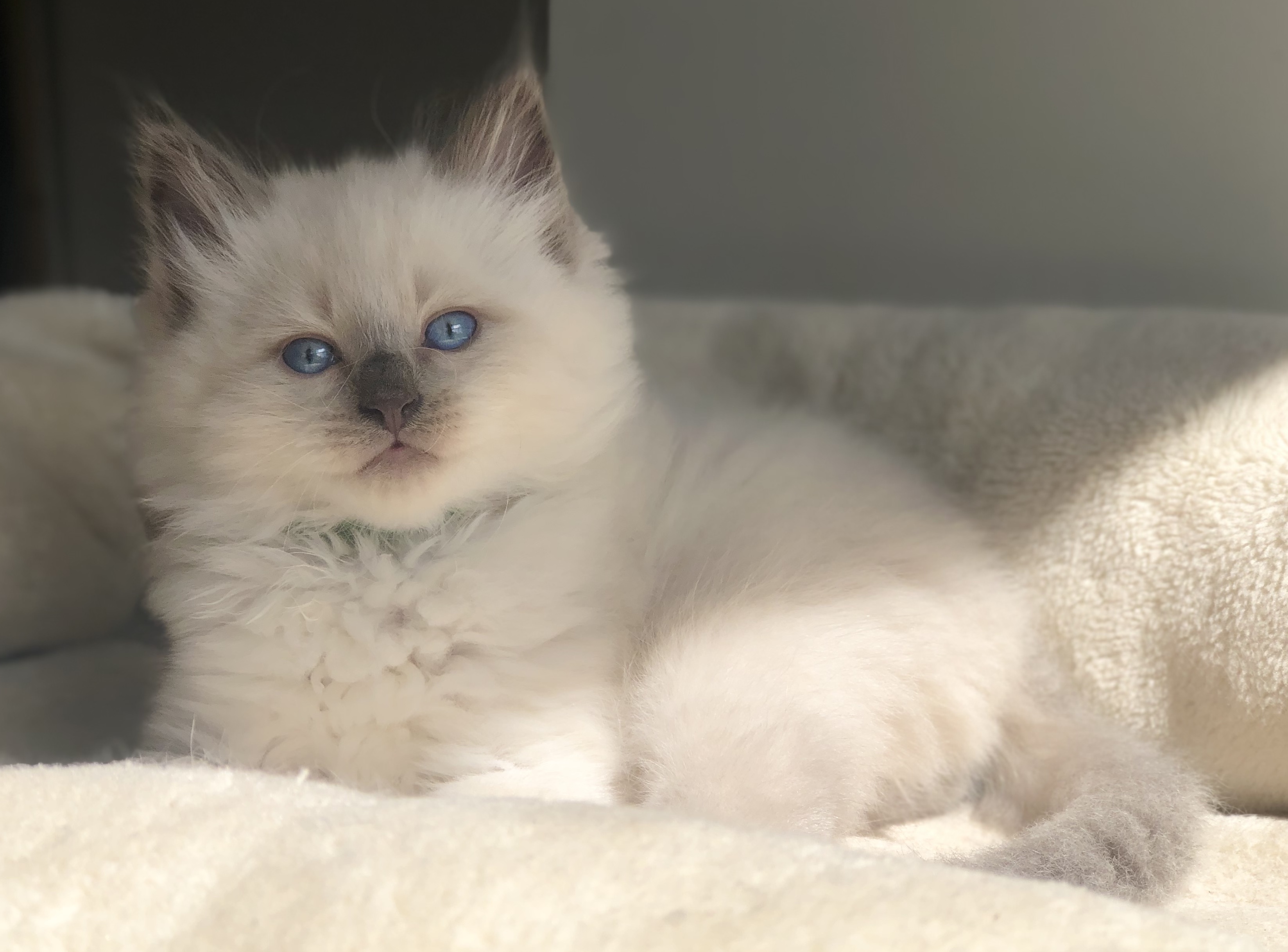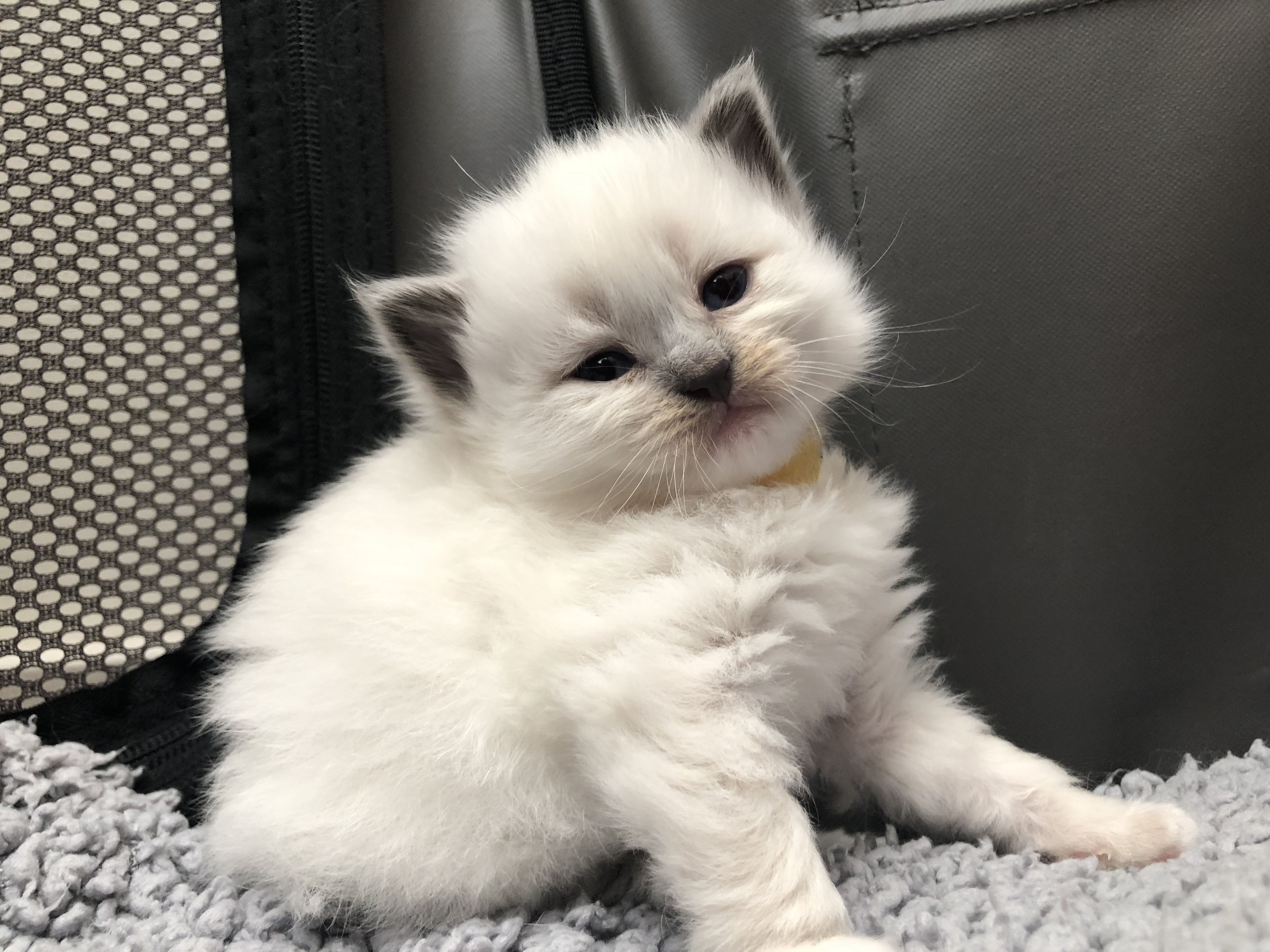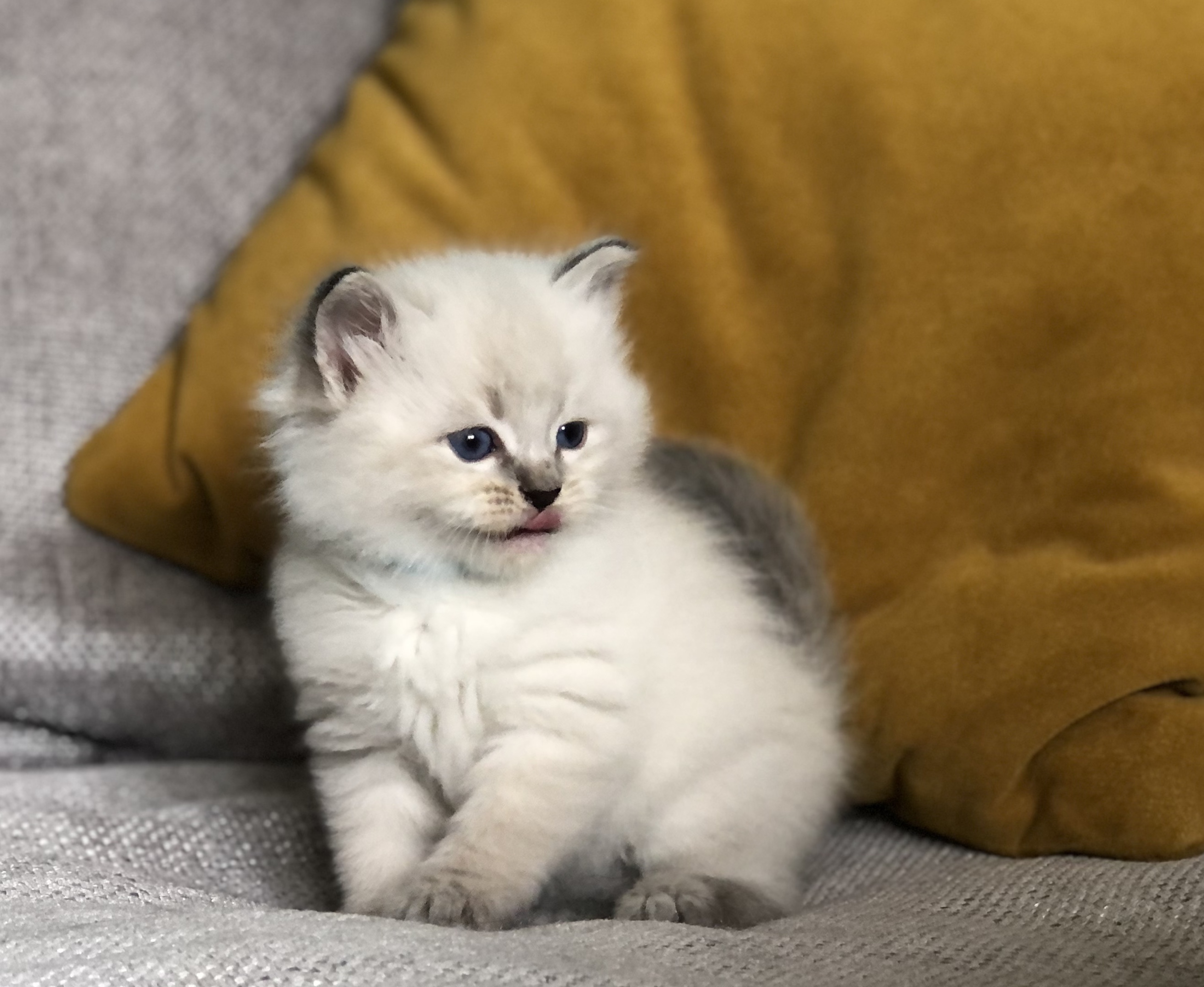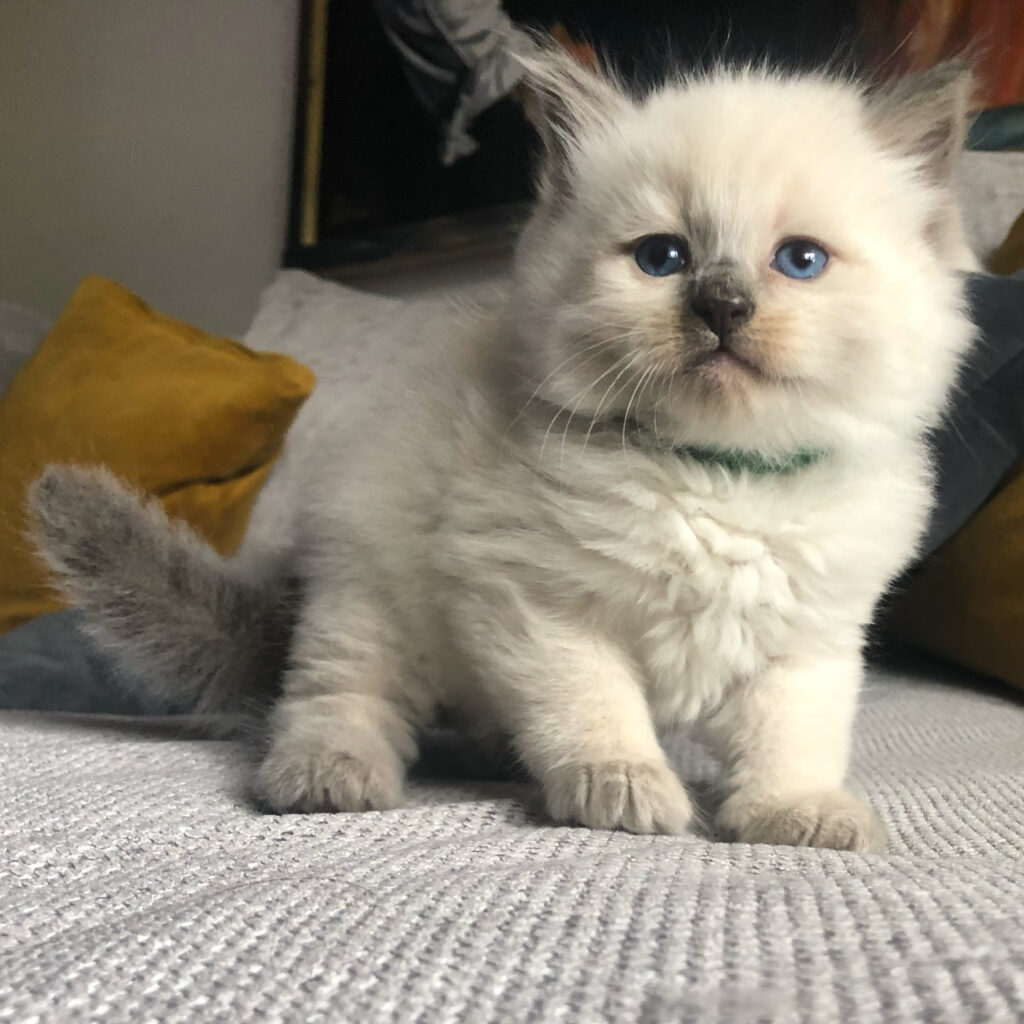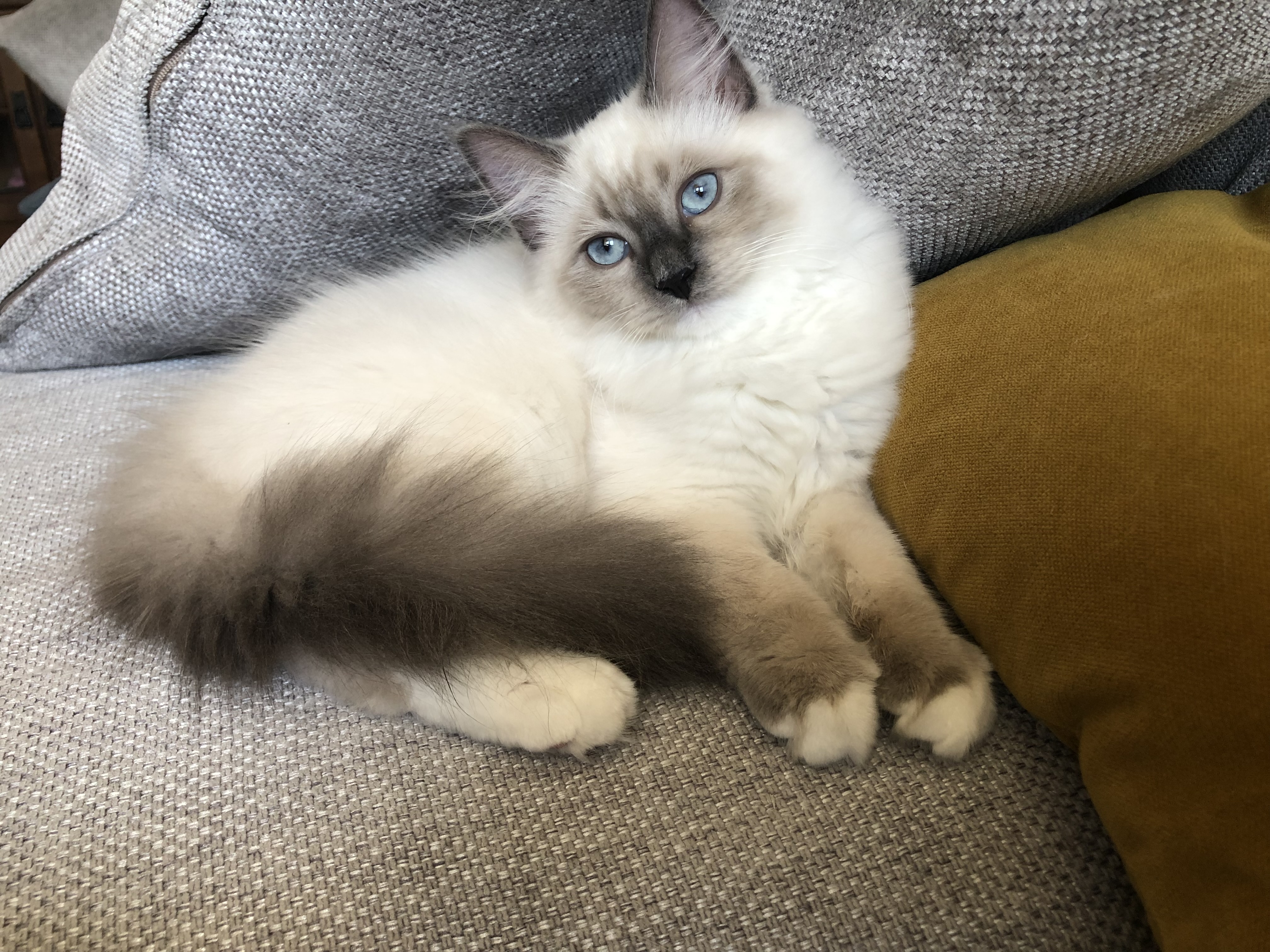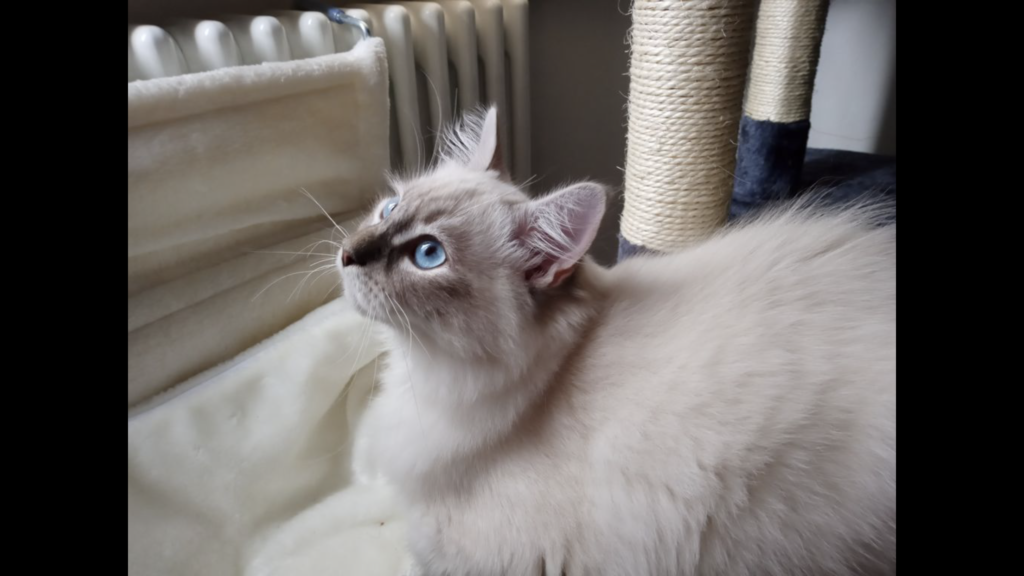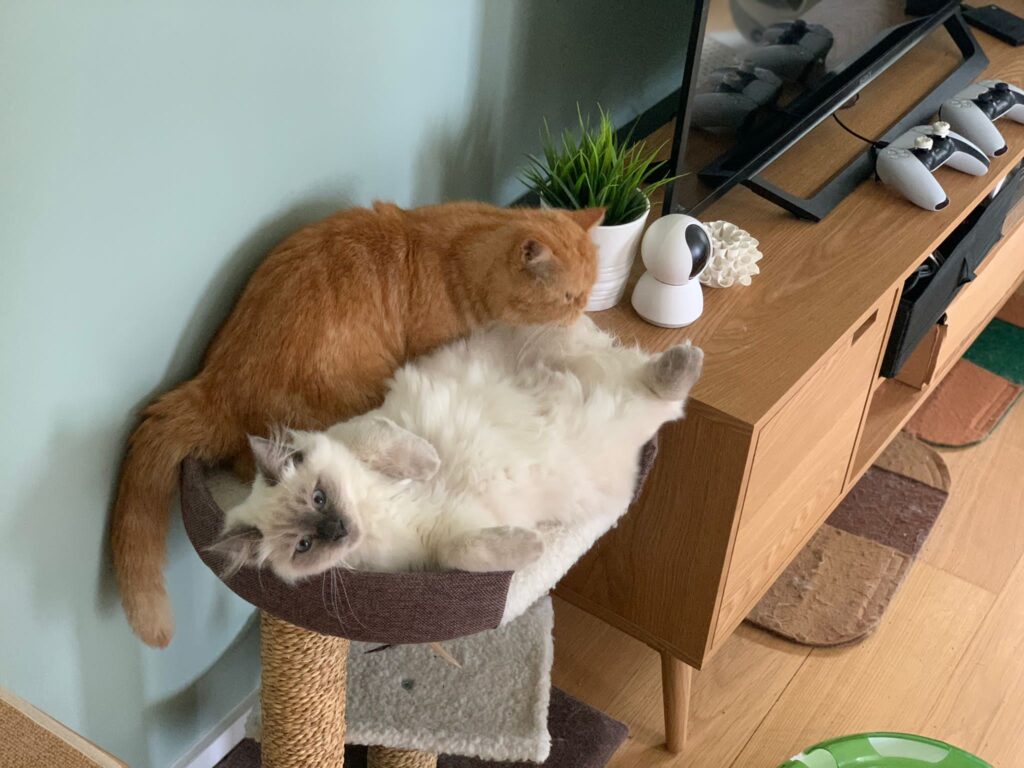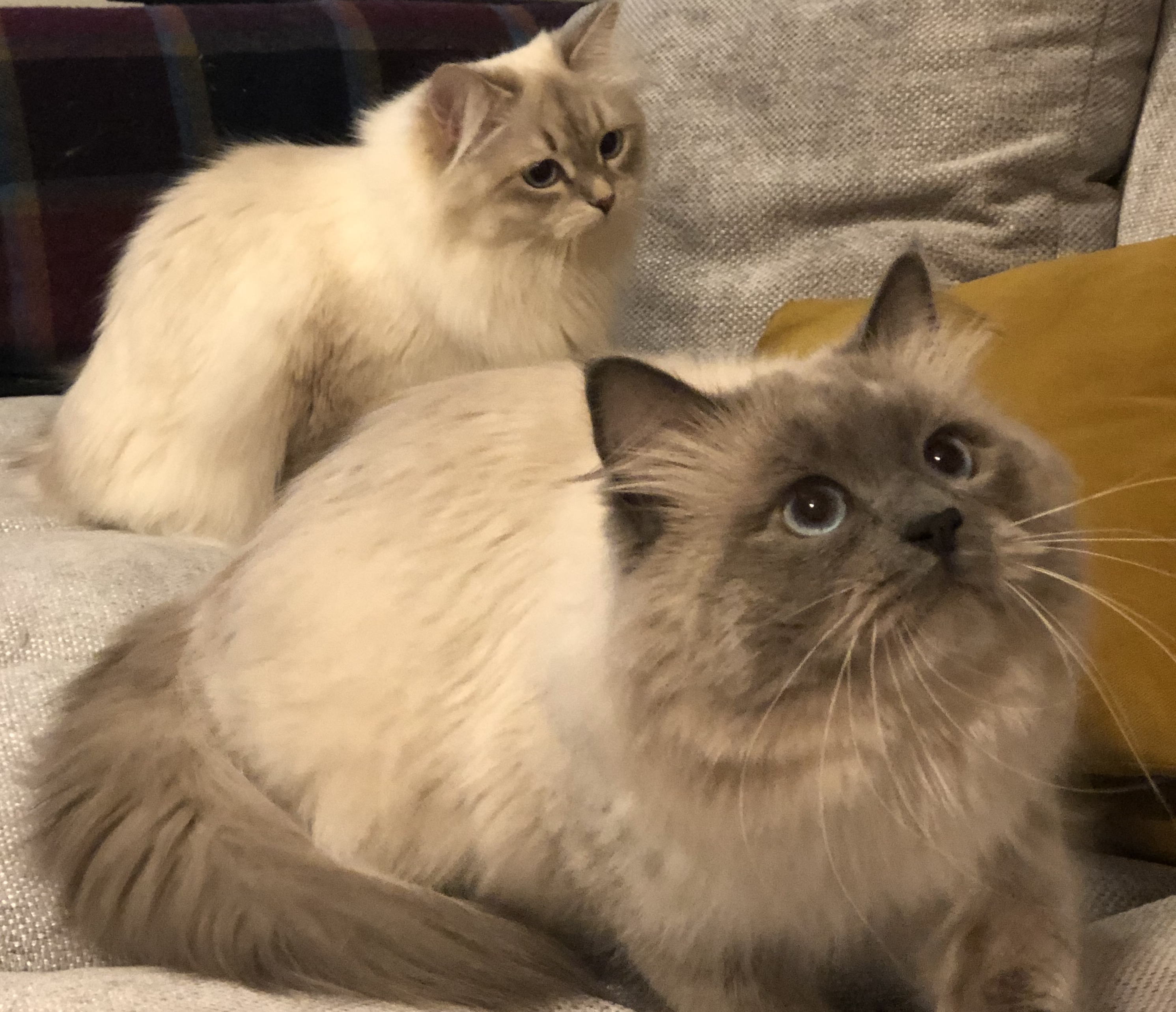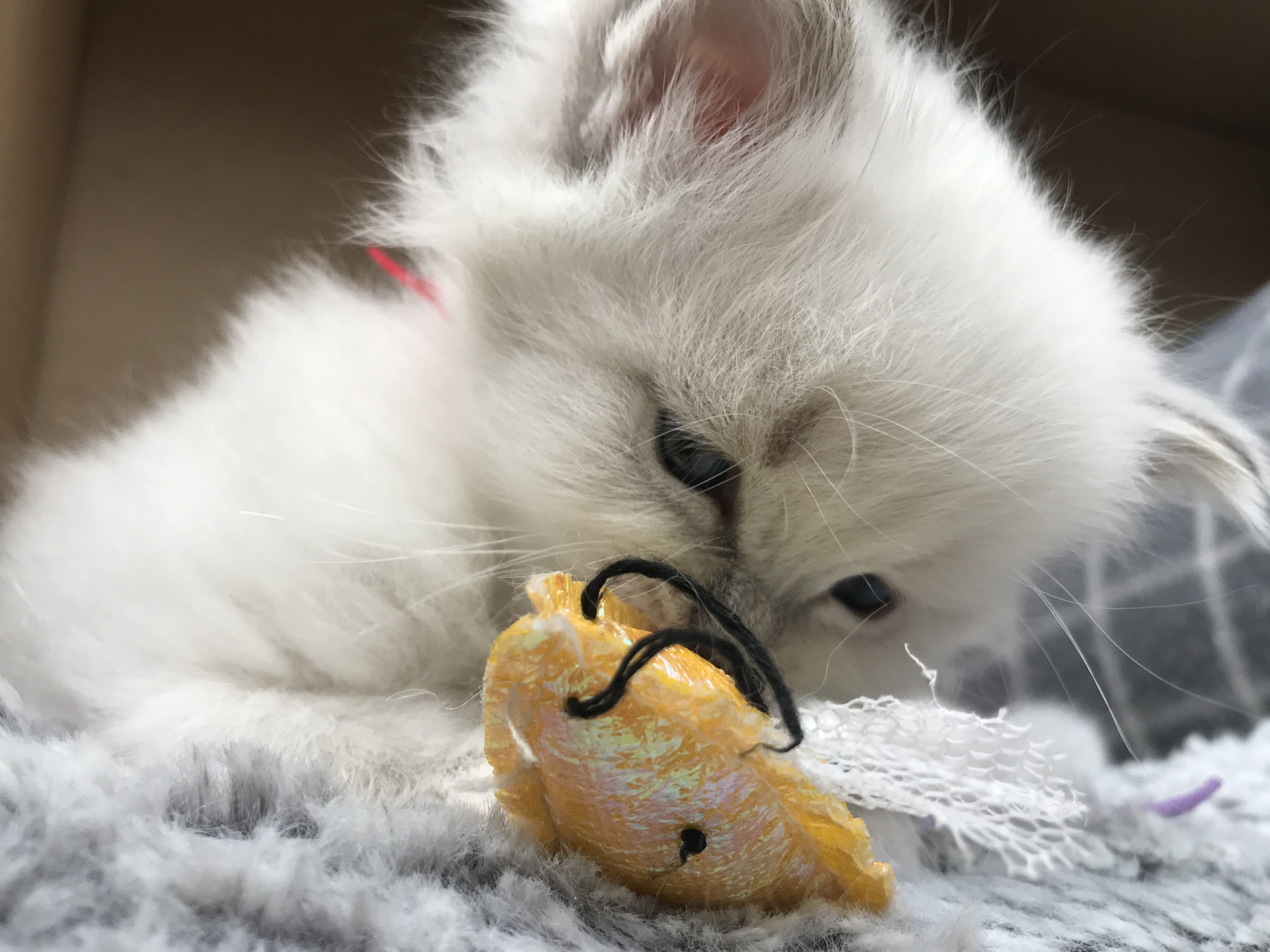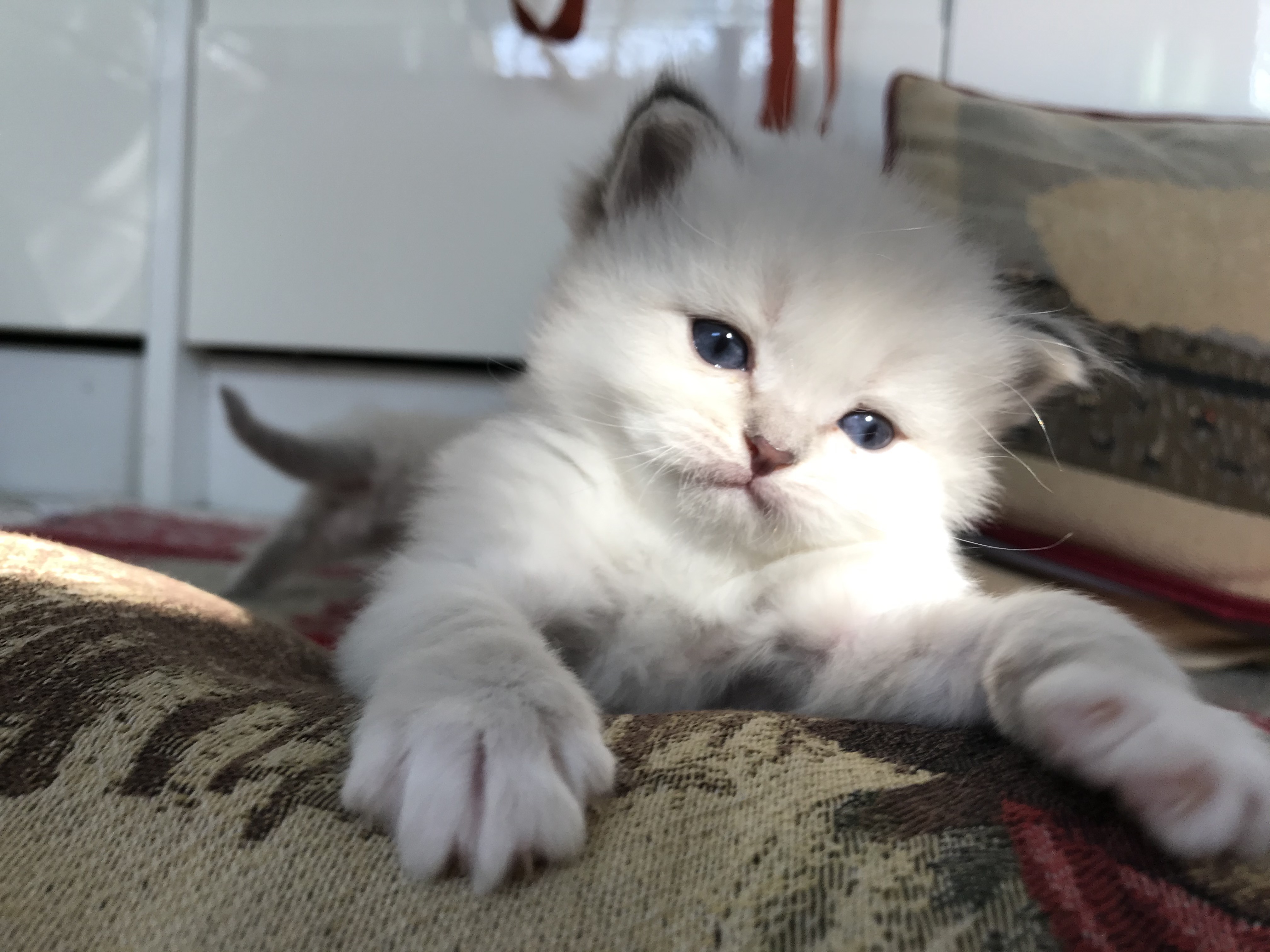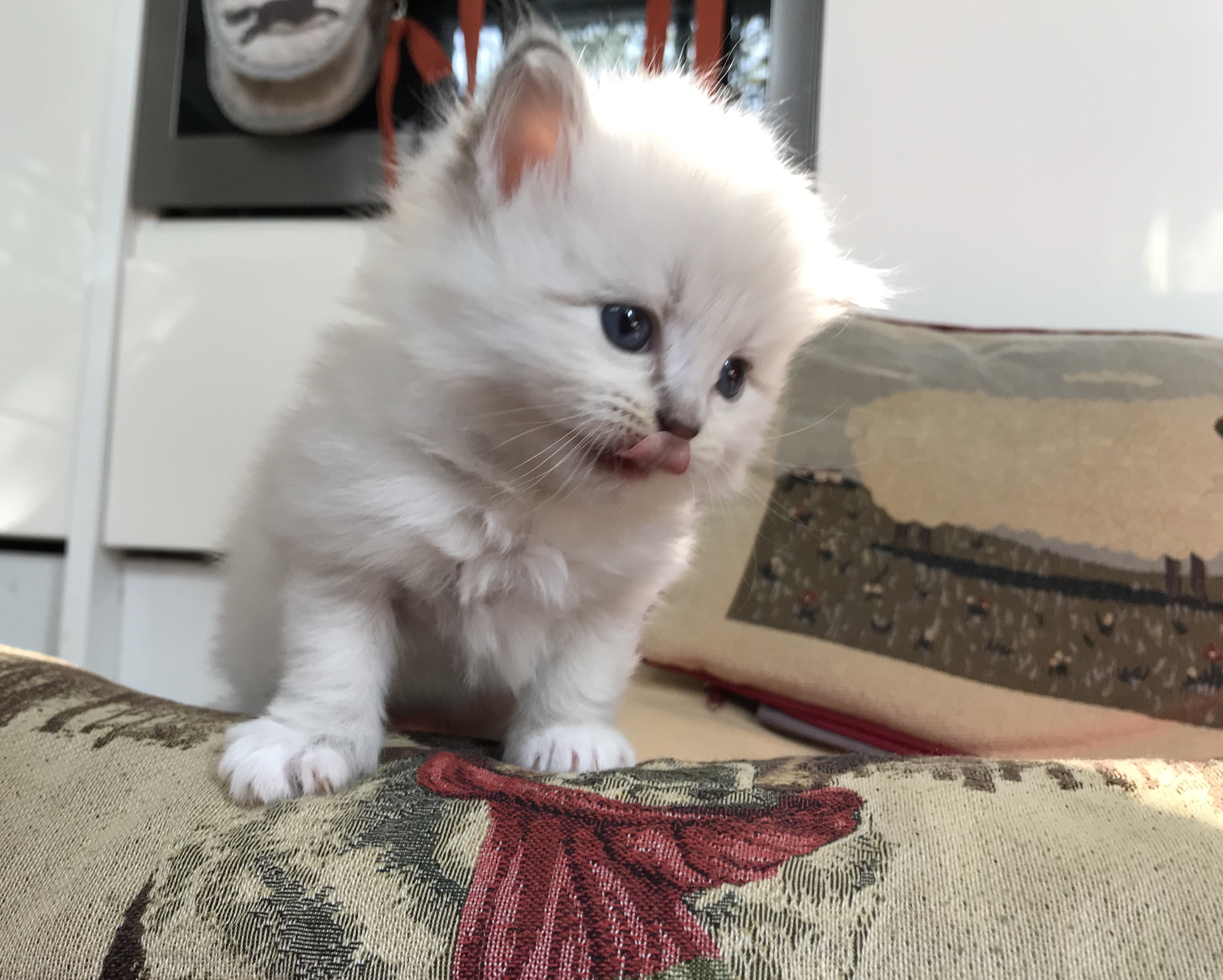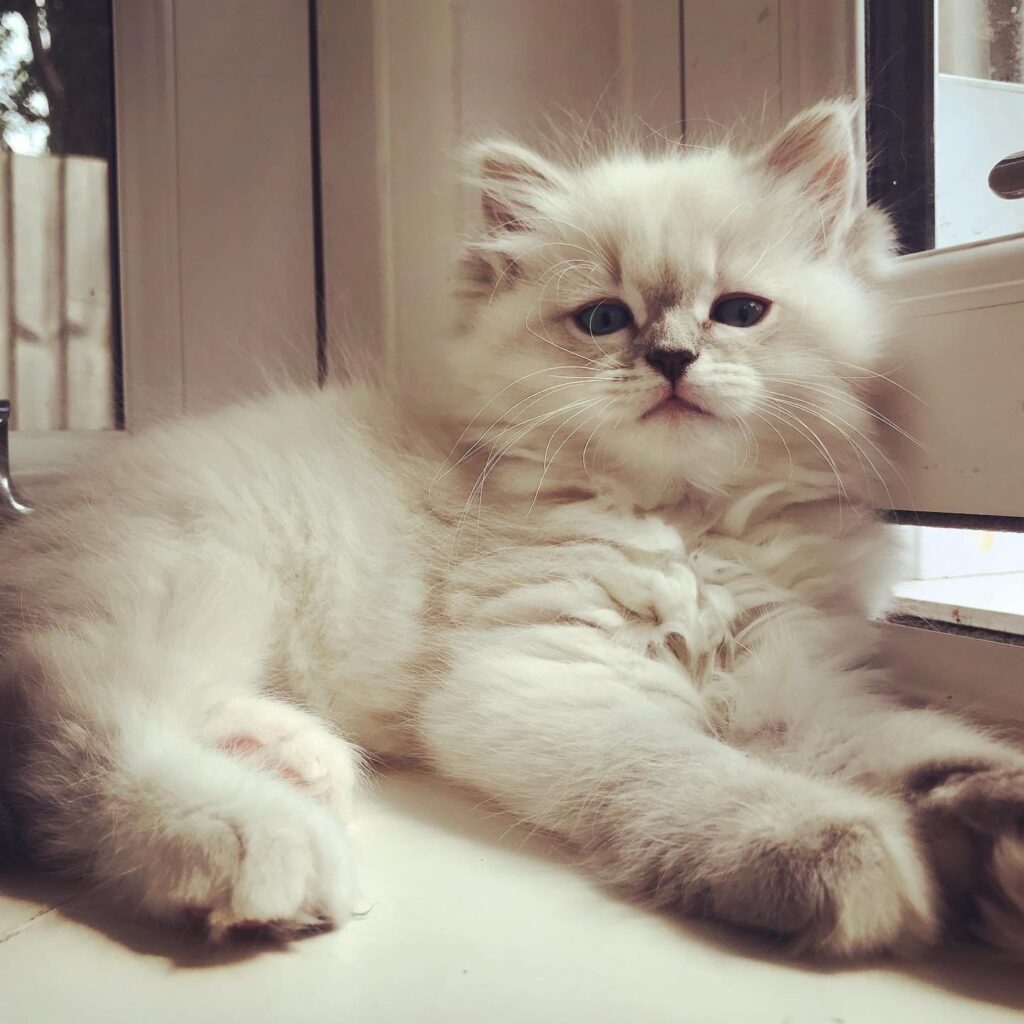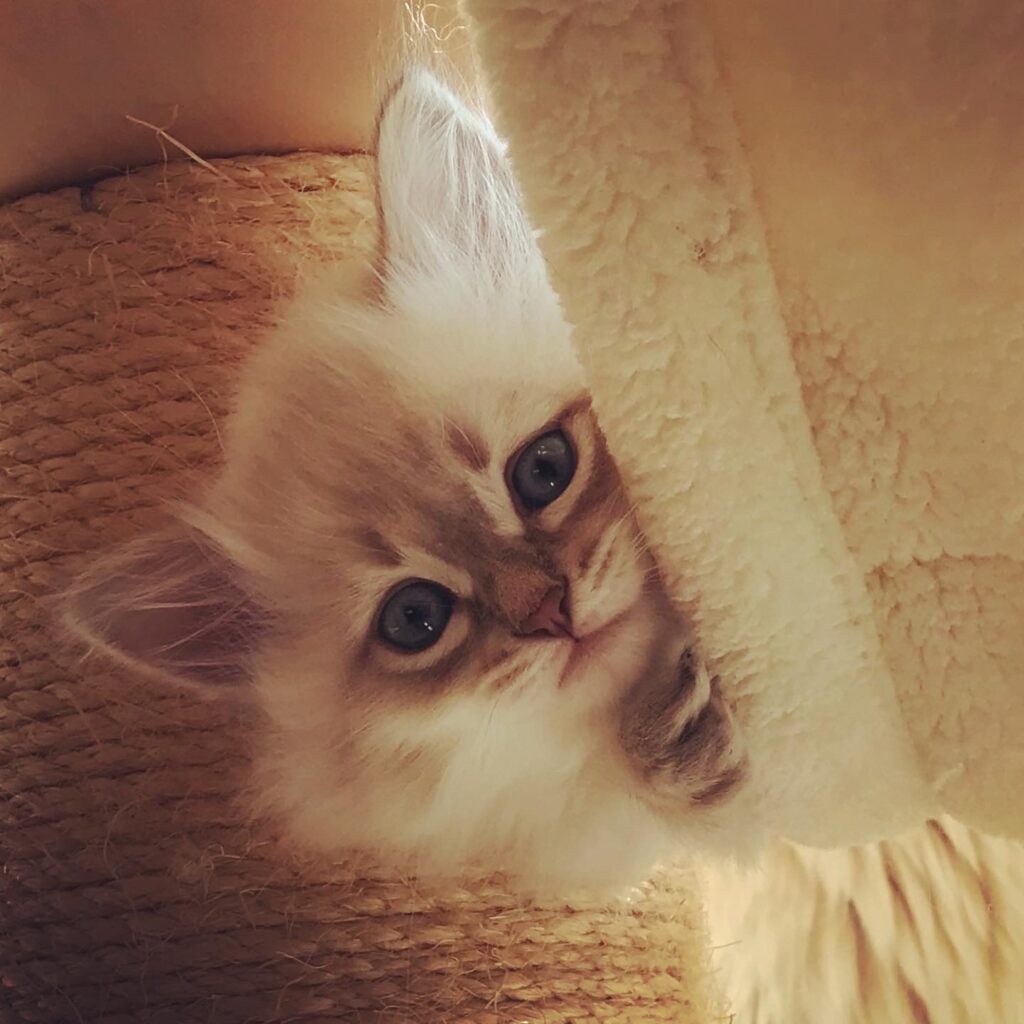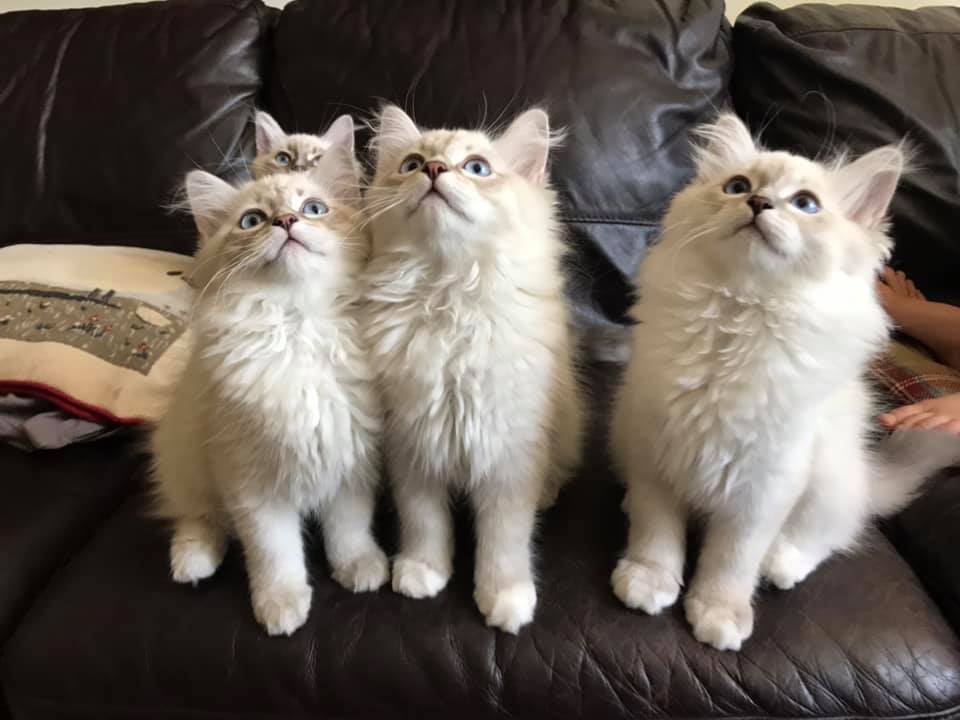What are Siberians?
They’re fantastic – but are they the best choice for you?
Siberians are truly unique. They are fluffy and gorgeous, but more than that they’re confident, easygoing and sociable. Siberians adore people, especially children, but are never annoying and demanding. They’re incredibly clever; they can open doors and even drawers, but once they’ve got the drawers open they tend to just luxuriously snuggle in them rather than cause any trouble.
They change their clothes for summer and winter. The winter coat is the one you’ve probably seen in pictures – a wide thick ruff, full tail, and lots of hair everywhere. In the spring, they shed that coat almost completely. The summer coat is only medium-long; in some cats it can almost look like they’re short-haired. Then in the autumn the warm clothes come out again.
They adore toys and will do amazing acrobatics and flips for wands and teasers.
If you dream of a soft, round, reading-on-the-window-seat cat who comes alive when the toys are brought out, the Siberian may be the perfect fit.
Are Siberians hypoallergenic?
This is a tough question to answer – the most accurate statement is “maybe.”
Siberians as a breed have somewhat lower Fel d 1 levels than other breeds. Fel d 1 is one of the major allergens that make people get itchy and sneezy, so for some people a Siberian can trigger fewer allergic reactions.
However, even the lowest-allergen Siberian will have more than enough to trigger reactions in those who are really sensitive, and the allergen levels in each cat go up and down based on diet, stress, hormones, etc.
If you have mild cat allergies, Siberians may be a perfect answer for your family. If you have major allergies, or have ever had a life-threatening reaction to a cat, you will probably still react to a Siberian, and we’d honestly recommend that you not put yourself at risk by trying.
How big do Siberians get?
Siberians are heavy cats – when fully mature, you should expect 6-7kg for males; females will be around 4-6kg. They’re not supposed to be oversized or cartoonishly large like a Maine Coon, though – if Maine Coons are the Great Danes of the cat world, Siberians are the Bullmastiffs.
Siberians are heavier than they look, with big solid bone, round heads and bellies, and a lot of muscle. They grow slowly and mature over a full four or five years. Males typically put on about a half a kg a month until they are a year old, and then add their last 2kg over the next few years. Females at their first birthday are usually under 5kg, and still very much kittens. By the age of three they have their full size, but continue to bulk up until age five.
WHAT KIND OF GROOMING DO SIBERIAN CATS AND KITTENS NEED?
Siberians don’t require extensive grooming, but they’ll get mats and tangles if their coats are neglected.
If you buy a kitten from us, he or she will have been groomed regularly and won’t panic when combs and brushes come out, but any cat can decide that grooming isn’t their favorite activity.
You should plan on buying a smooth-toothed comb and a slicker brush, and comb every part of your cat about once a week. Nails should also be clipped every week or two.
If you find that schedule to be too overwhelming, or your cat hates it and makes you very stressed about grooming, there’s nothing wrong with using a professional groomer for a bath and a deep grooming once a month or so.
HOW DO I RESERVE A KITTEN?
Almost all of our kittens are reserved before they are born. If you see a litter you are interested in please send us a message.
We reserve four kittens per litter for new families; if there is not a kitten available in the litter, you will automatically move to the next litter. If you think we may be a good fit for your family, the next step is to fill out an application form. Approved families will then be allowed to give a non-refundable deposit (£500), which is considered a first payment toward the kitten’s purchase price.
The remaining payments are due before the kitten is collected; unfortunately, we cannot offer payment plans that extend after the delivery date.
HOW SHOULD I INTRODUCE A NEW KITTEN TO OUR HOME?
Our Siberian kittens are friendly and outgoing, but when they arrive to you they’ll be a bit like human four-year-olds – easily overstimulated, needing regular naps, and craving a healthy routine. It can be incredibly scary to be brought into a new home and expected to get to know everyone and everything all at once.
The right way to introduce a kitten is with a “soft quarantine” – a comfortable room that is just the kitten’s, with no other animals allowed, but with lots of human interaction.
A bedroom with a door that can be closed, a family room, a home office, or similar is ideal. Let the kitten feel protected and safe, and let her explore this room at her own pace for at least a week. After this point you can open the door with a baby gate between the kitten and the rest of the house, so that existing cats, dogs, and visitors can meet her but not overwhelm her. Once she is asking for the gate to be open, do so for short periods. Before you know it, she’ll have the run of the house and be the confident, social little creature she has the potential to be.
We will always be available to support any issues if they arise.
WHAT’S INCLUDED IN THE PURCHASE FEE?
We’re committed to making sure you bring home an affectionate, socialised pet that has been well-cared for and prepared for a wonderful life with you.
Veterinary physical exam and age-appropriate vaccinations and treatments
Before they leave for your new home, every cat is given a minimum of two RCP vaccinations. All cats over 6 months are tested for FIV/FeLV. Regular worming has been done, all kittens are treated preventively for coccidia and giardia, and we give an initial anti-flea treatment even though we do not have fleas in our home.
Spay/Neuter
All kittens leaving us as pets are spayed or neutered.
Microchip
All kittens will be microchipped and the new owners given registration information.
TICA registration
All kittens will be sent home with TICA registration.
Prices for Citroneva Siberian cats
Retired breeding cats: £1000
Kittens up to one year old: £1500
HOW OLD WILL MY KITTEN BE WHEN IT COMES HOME?
We never want to let a kitten go before it is ready. They generally need their mums for a full eight weeks, and then they benefit greatly from being with their siblings and our older cats for another few weeks.
We spay or neuter at twelve weeks, once they are completely recovered from surgery, generally 1-2 weeks later, they’re ready to join your family.
DO YOU SOCIALIsE YOUR SIBERIAN KITTENS?
The difference between a scared or skittish Siberian kitten and a stable, social one is socialisation.
Kittens raised alone in a room, no matter how pleasant or entertaining that room is, will be scared and startled when they hear or see something unfamiliar. Socialisation means exposing the kitten – gently and steadily – to many new things, new sounds, new people, and new situations so that they welcome new experiences and are not scared of them.
We invest many, many hours over the weeks your kitten is here ensuring that they have positive exposure during their most formative weeks. We raise them with many other animals, small and big cats, smells and sounds, and humans from young to old.
CAN I COME VISIT AND HANG OUT WITH YOUR CATS?
We do not allow any visits or sittings. Your shoes, clothes, and even hands are sources of viruses, giardia, coccidia, and bacterial infections, and no amount of care can keep our kittens safe.
If we don’t have unvaccinated kittens here at the house, we will be happy to have you meet older litters and adults. If we have new kittens, however, we simply can’t. You’ll of course be able to meet the litter at ten weeks to make your deposit, and you’ll meet us in person to accept your kitten when it is ready to come to your home.
WHAT HEALTH CARE WILL MY KITTEN RECEIVE WHILE AT YOUR HOUSE?
We begin with daily checks and charting of weights and development in the newborn days; the kittens are born with supervision and are monitored 24/7. We supplement any kitten who is not gaining well, and we handle them many times a day. We begin a veterinarian-approved worming program at a few weeks of age, and we wean to raw Purrform food and then kitten dry food at 4-6 weeks. Your kitten will get a health check (heart, eyes, ears, skin, etc.) when first vaccines are given at nine weeks. They get another check when they are vaccinated, spayed or neutered at 12 and 13 weeks. We never skimp on care – we know how important it is for you to come home with a healthy kitten. All kittens will be microchipped before going to their new homes.

